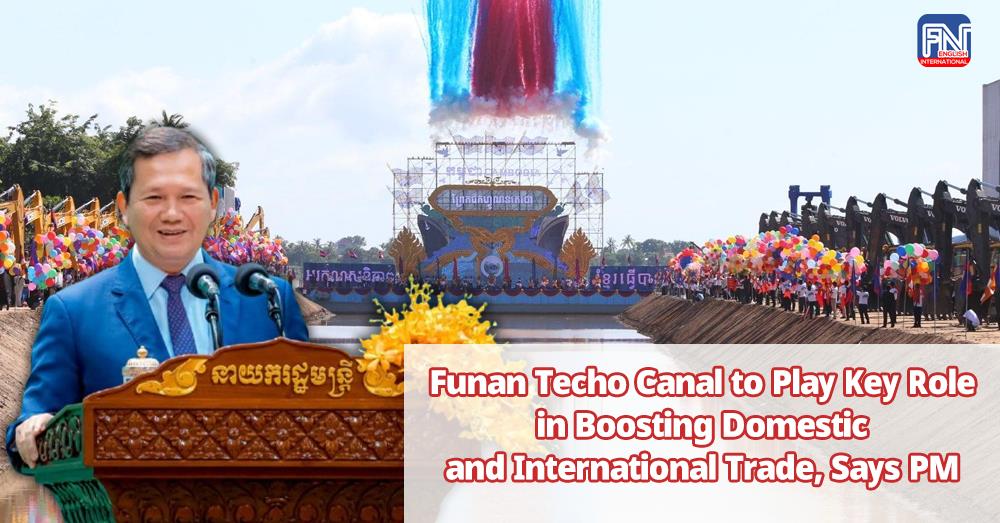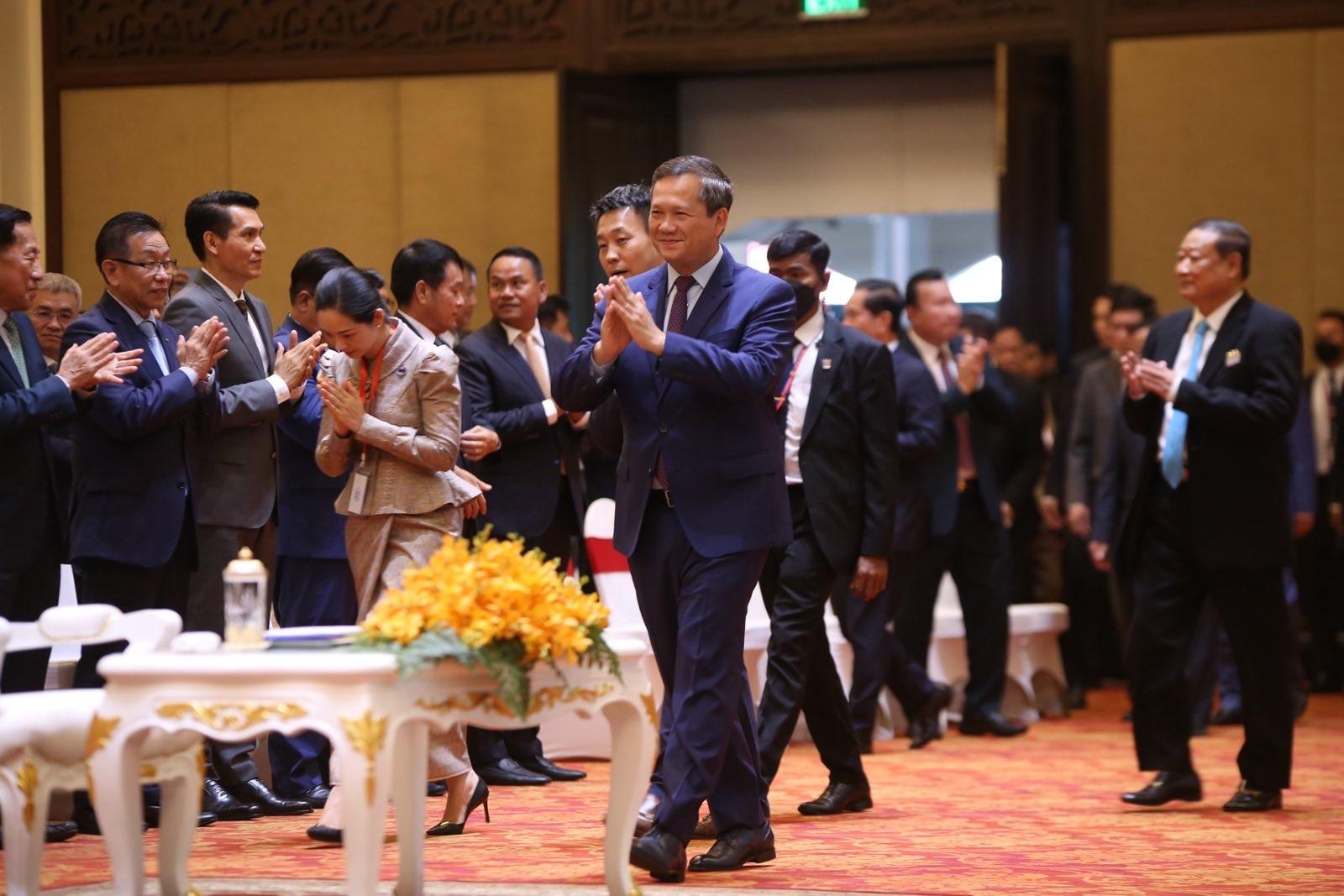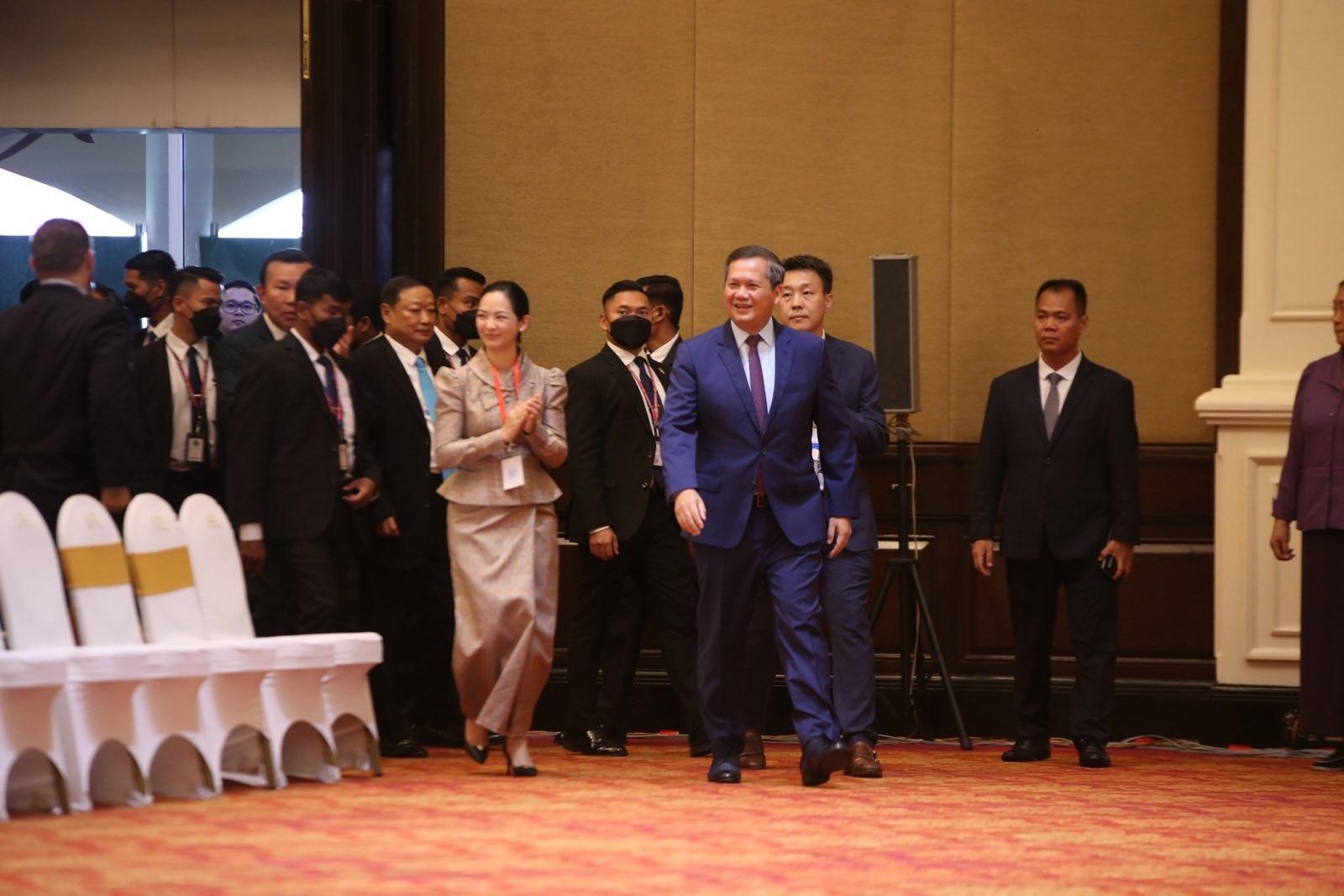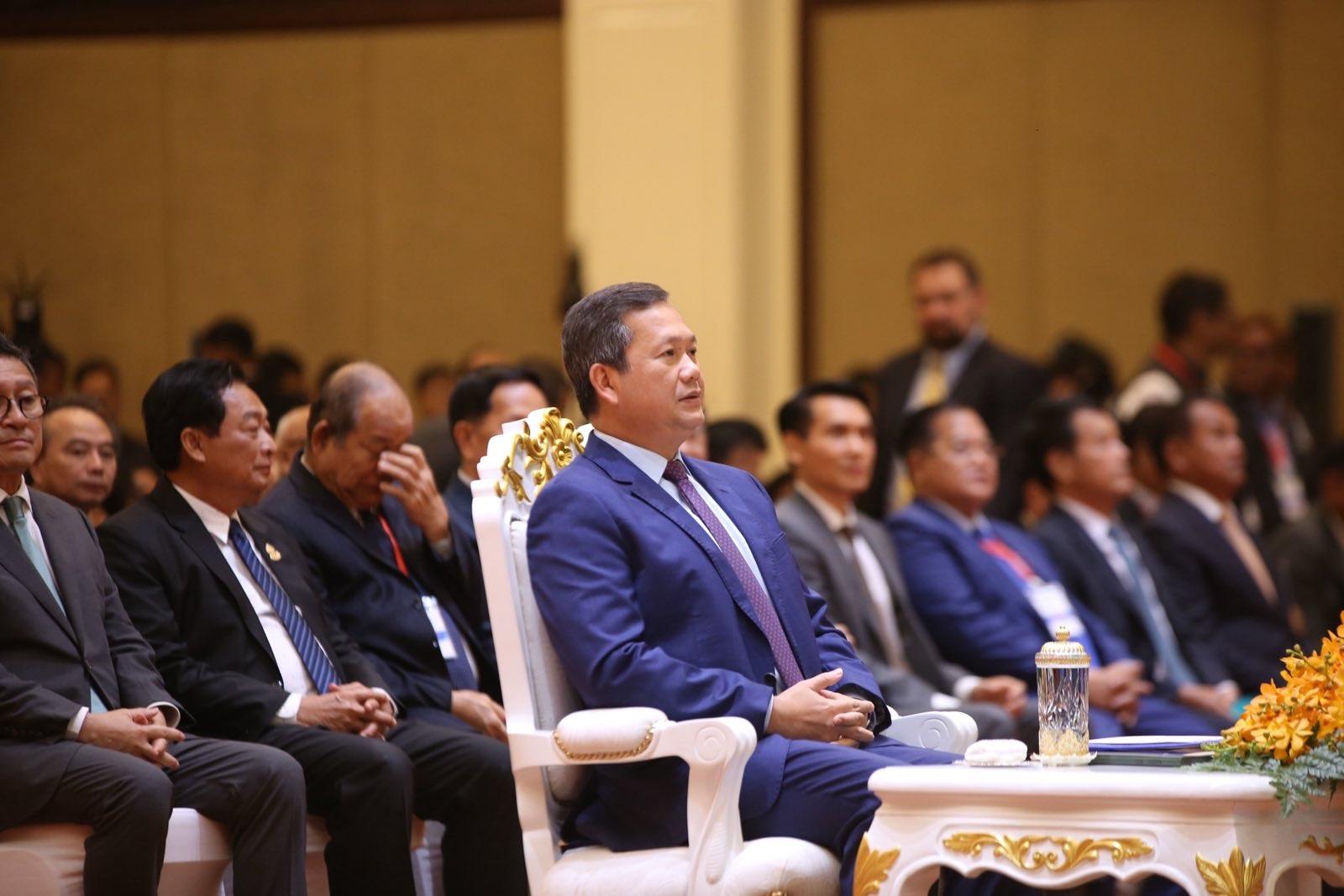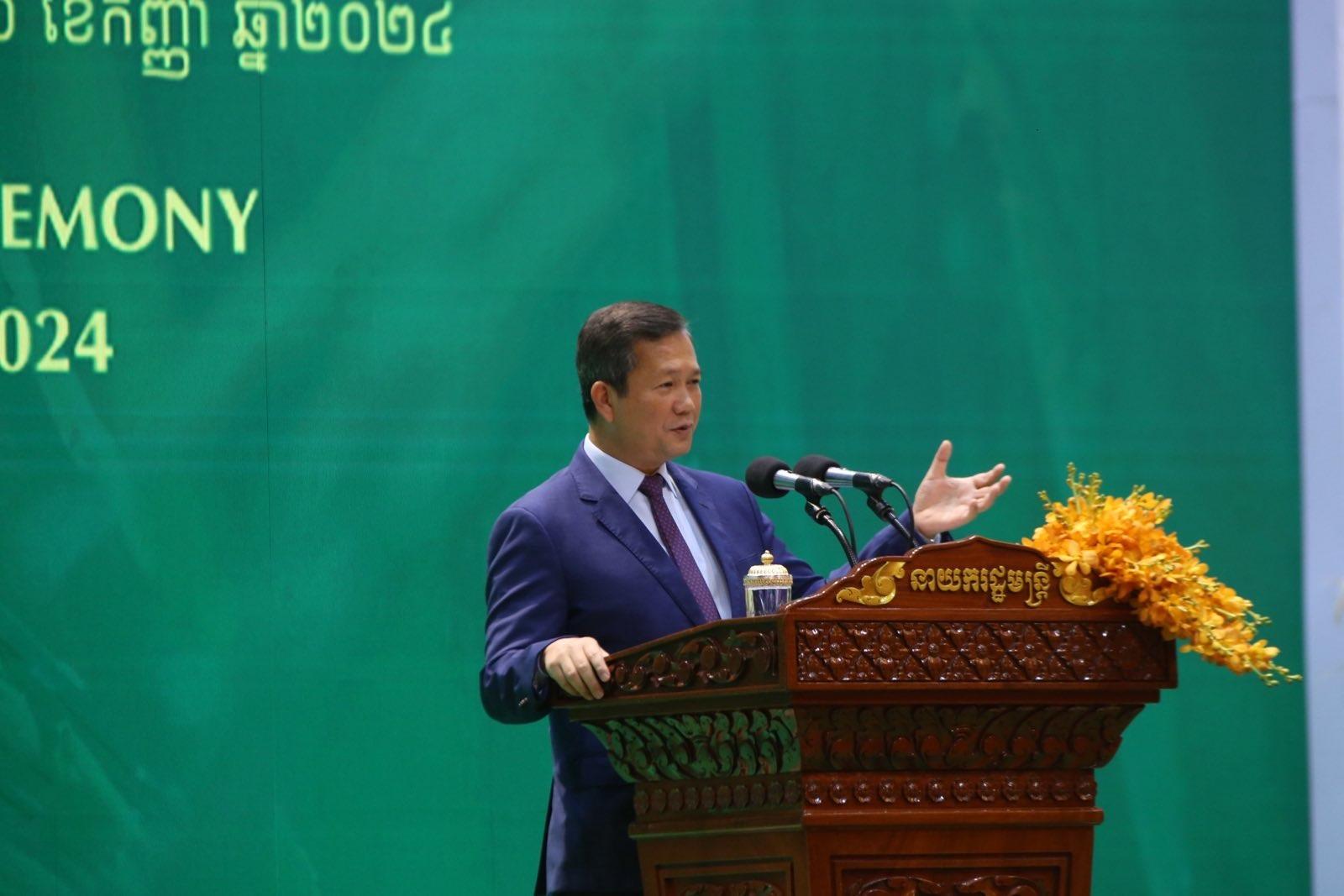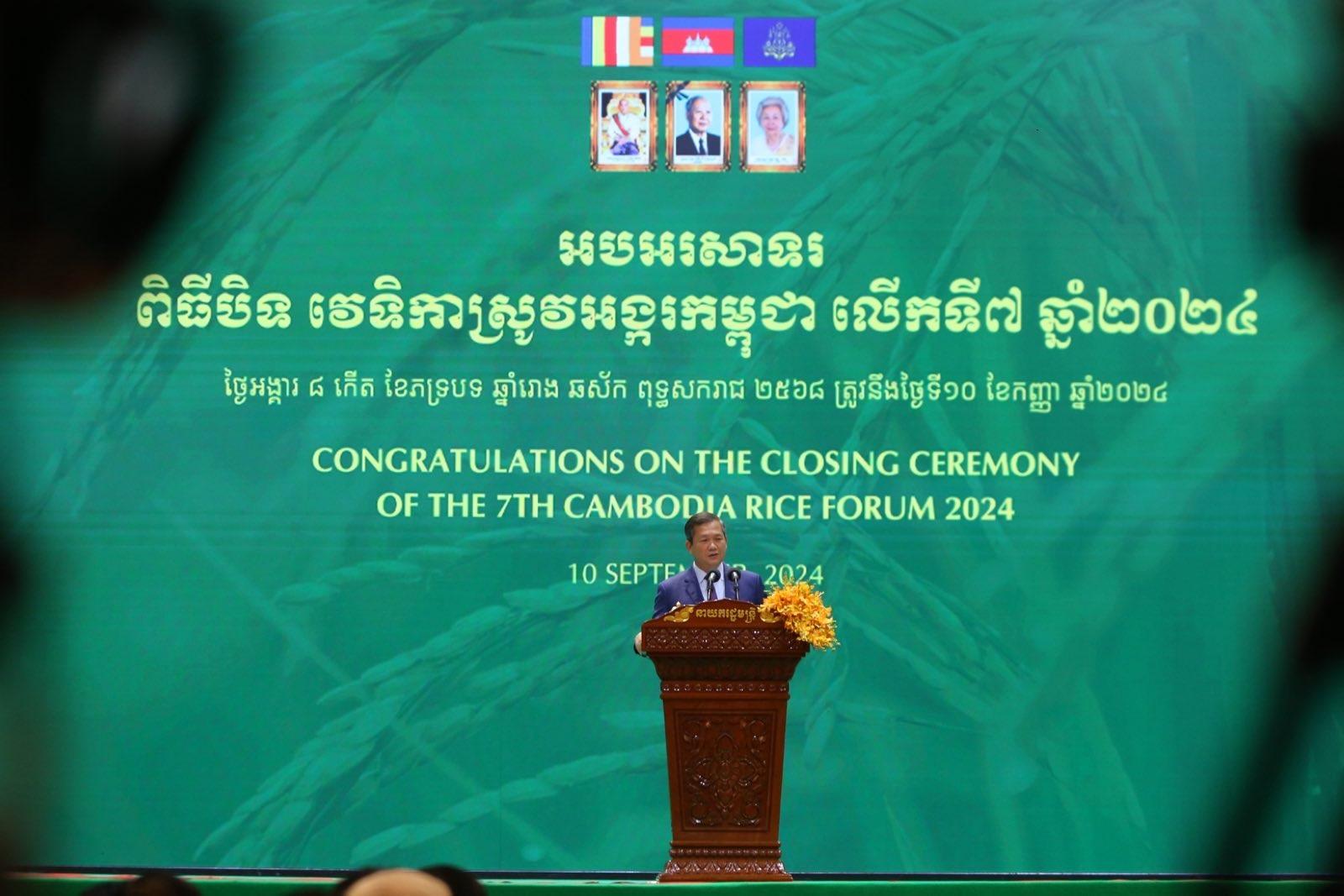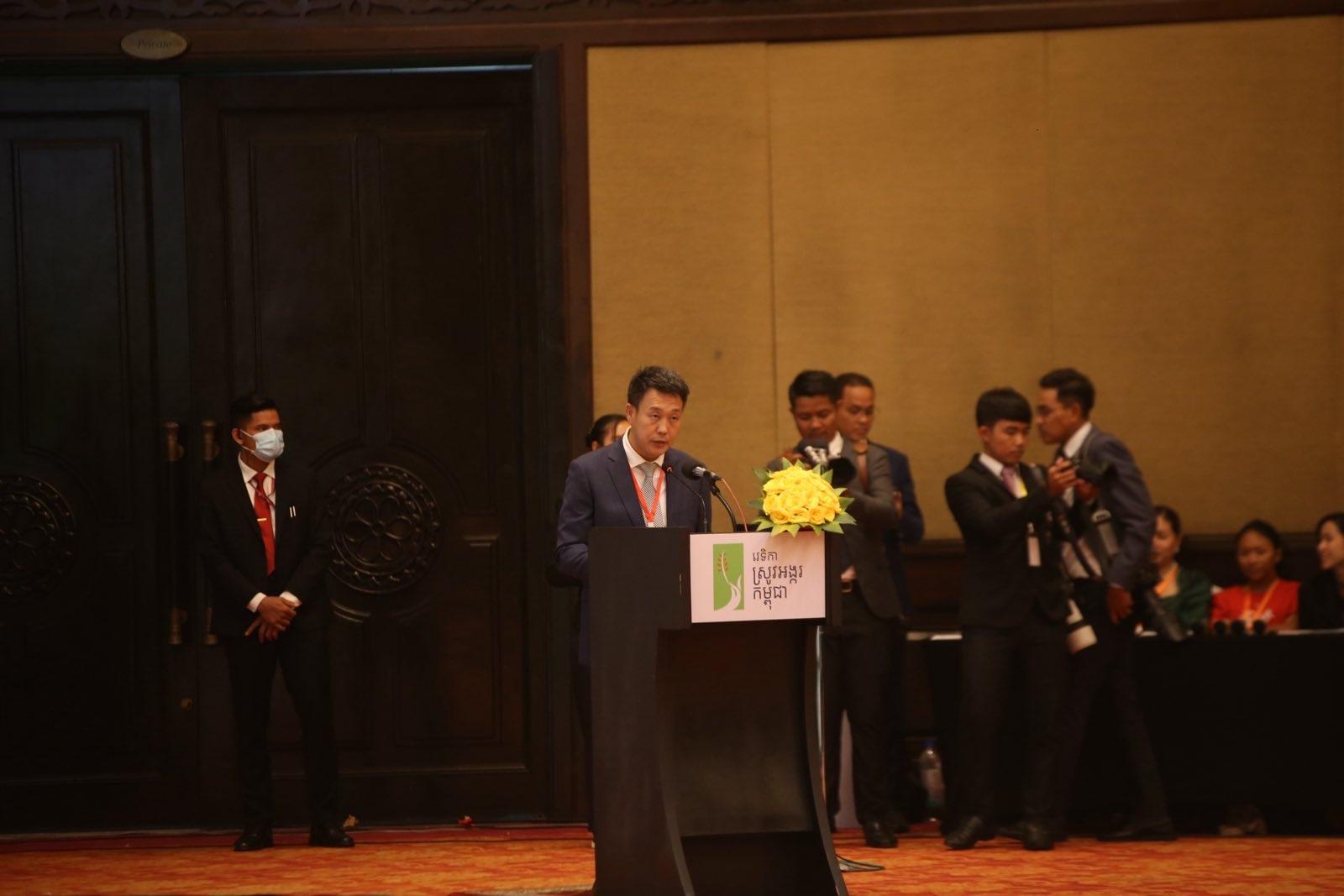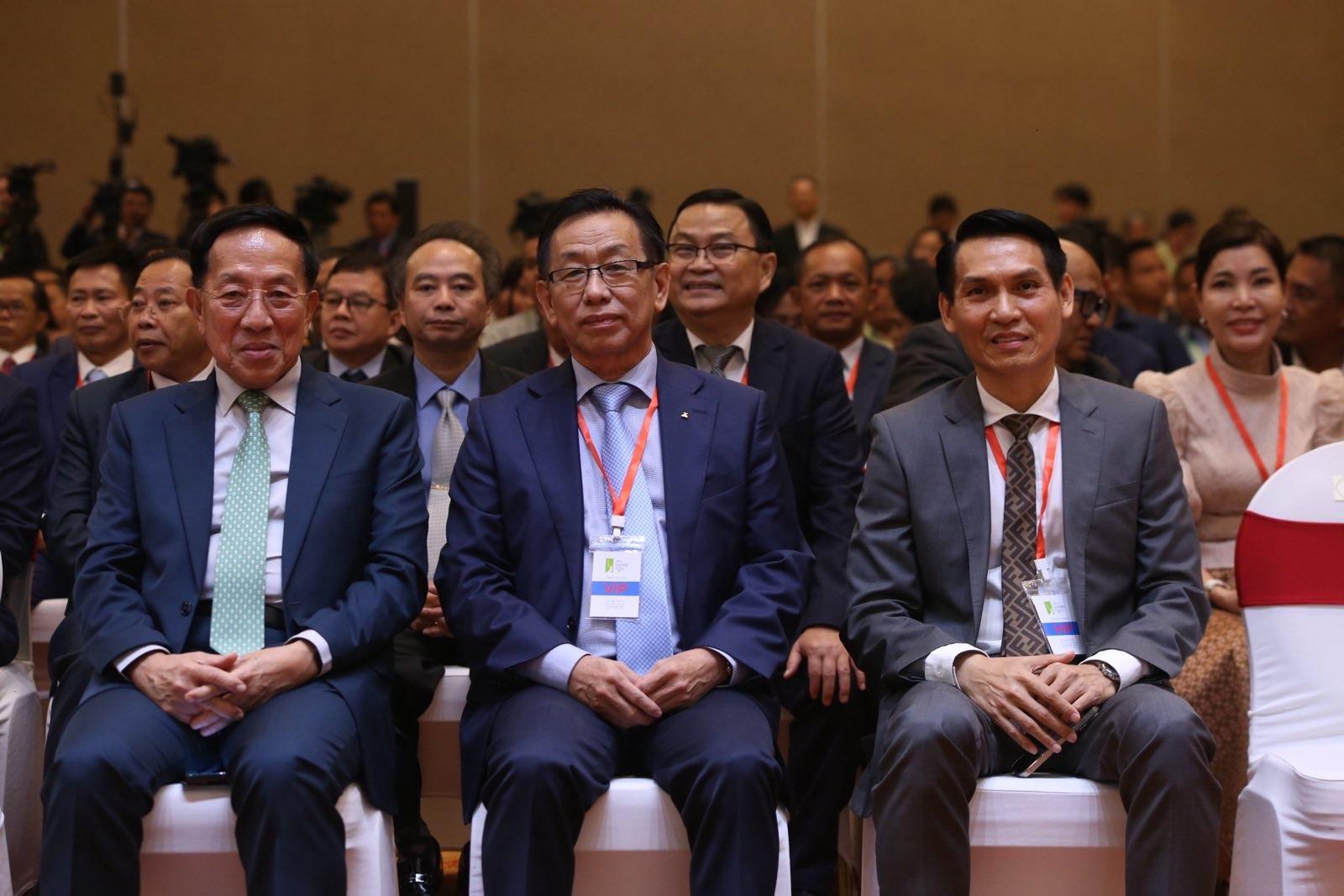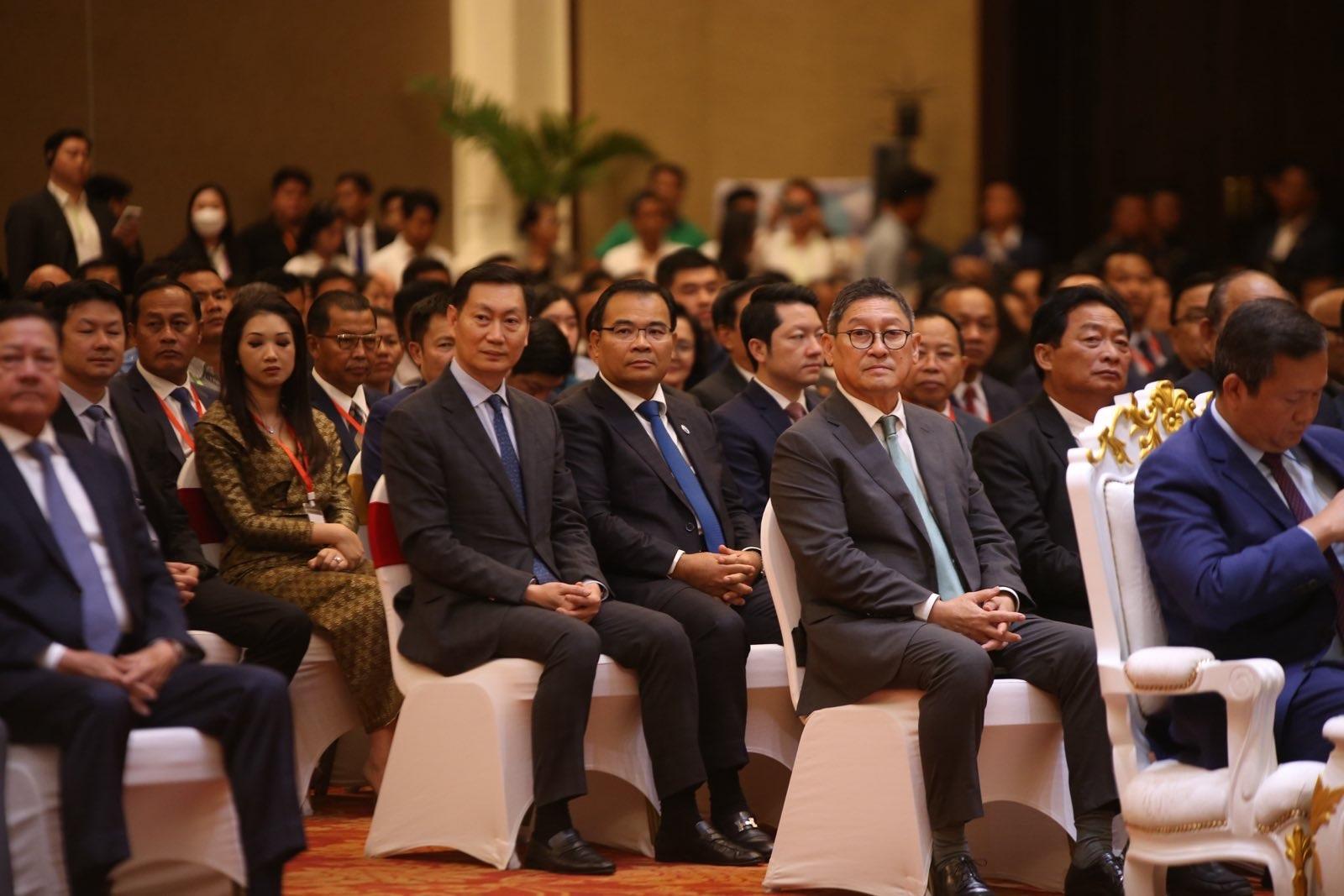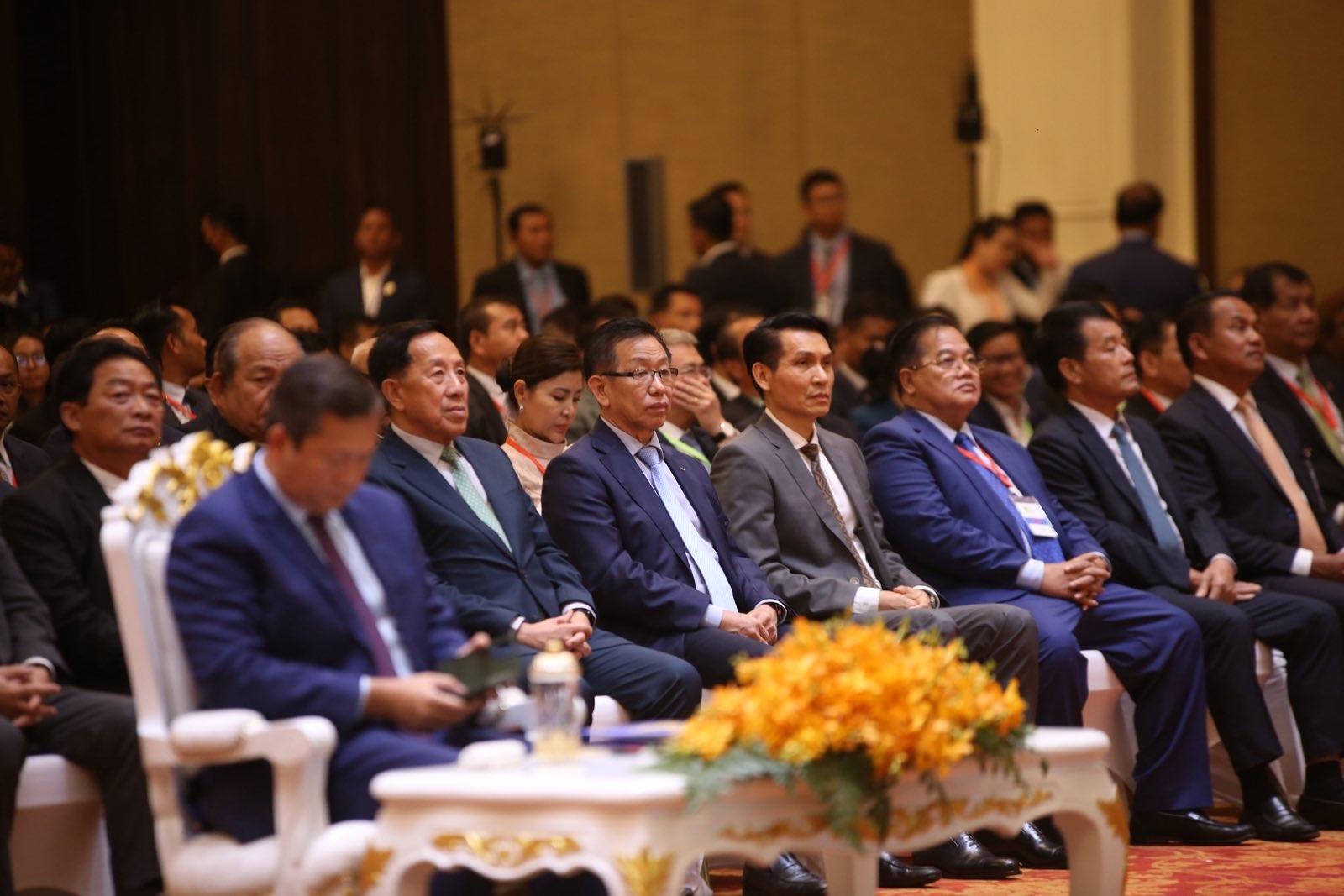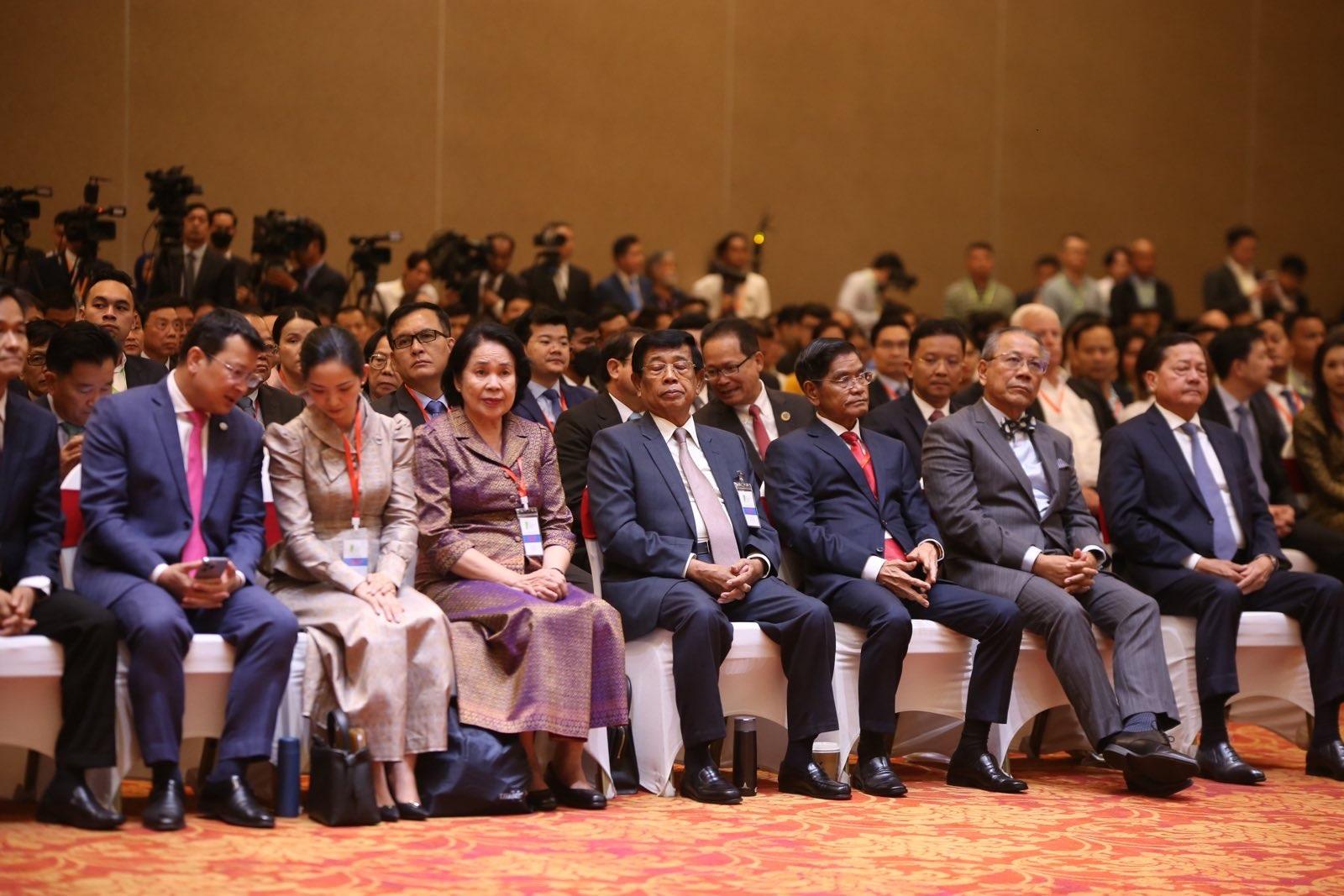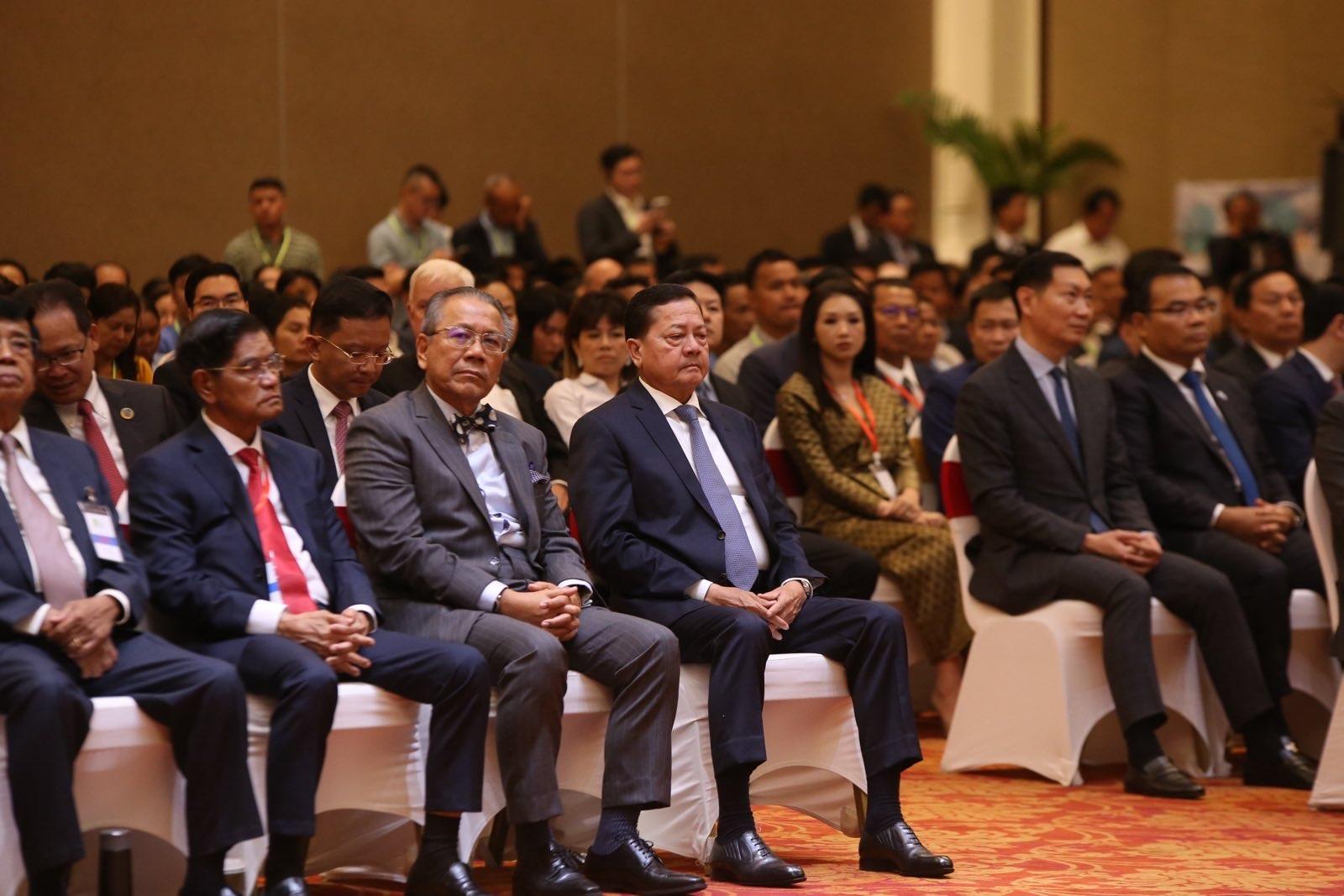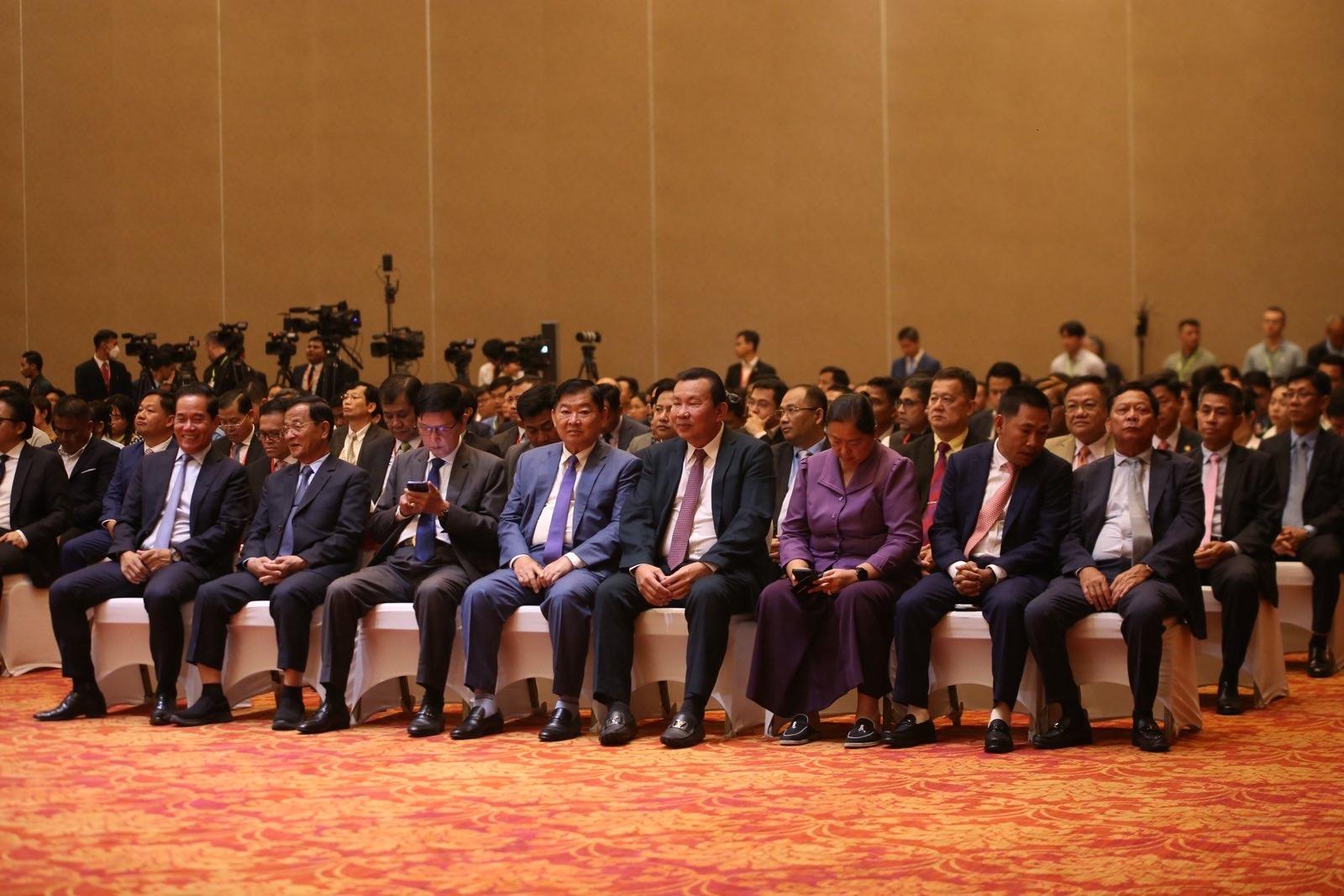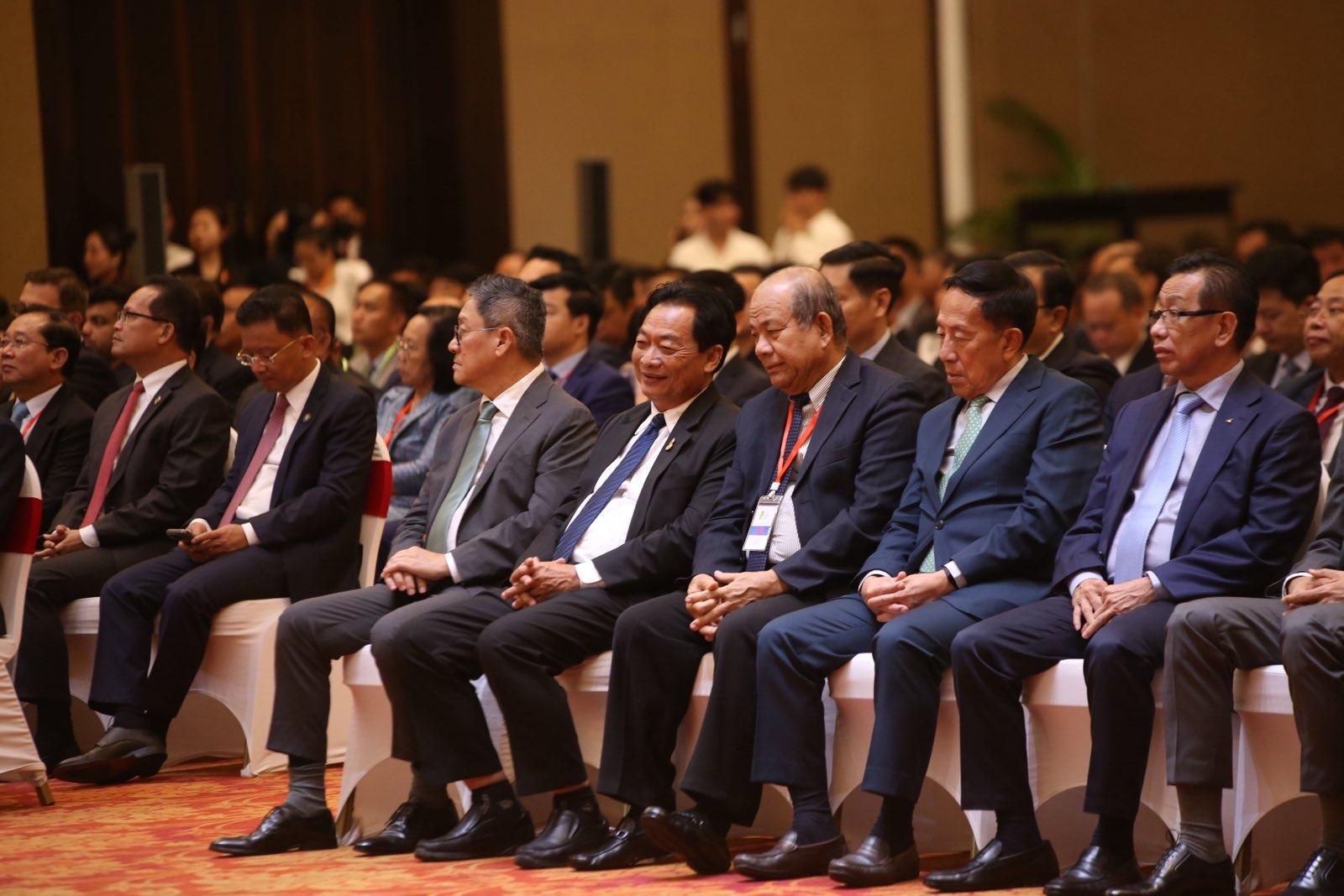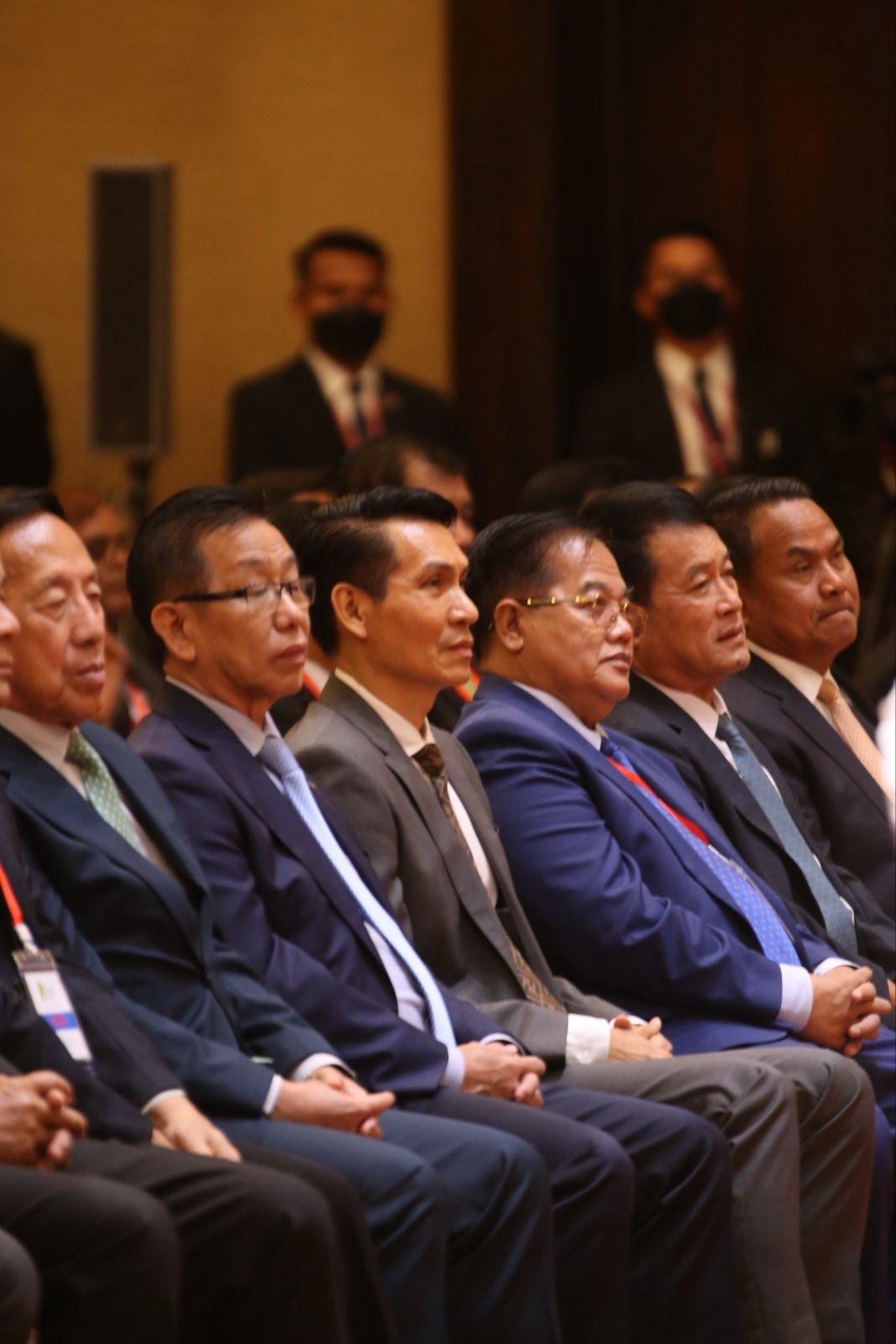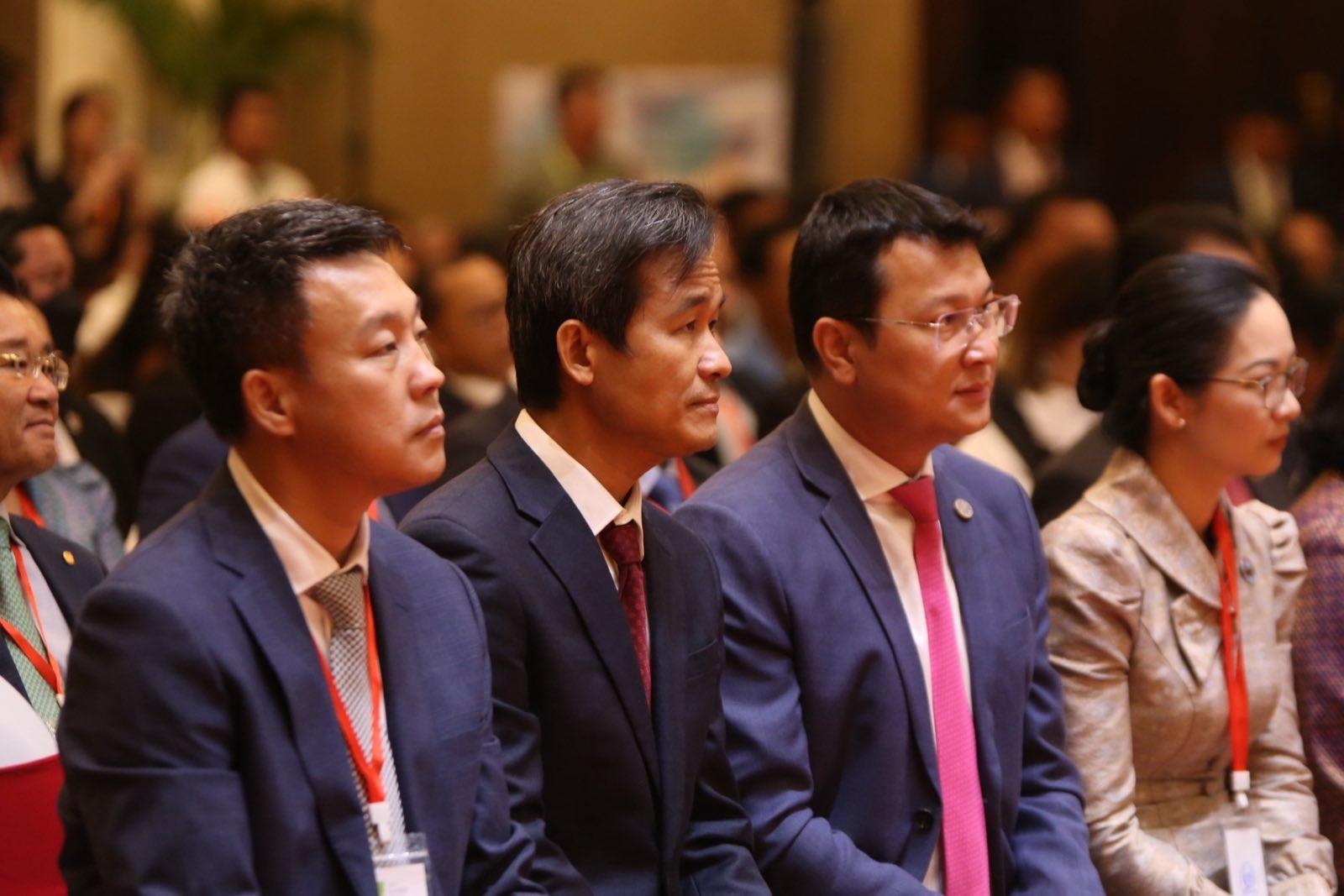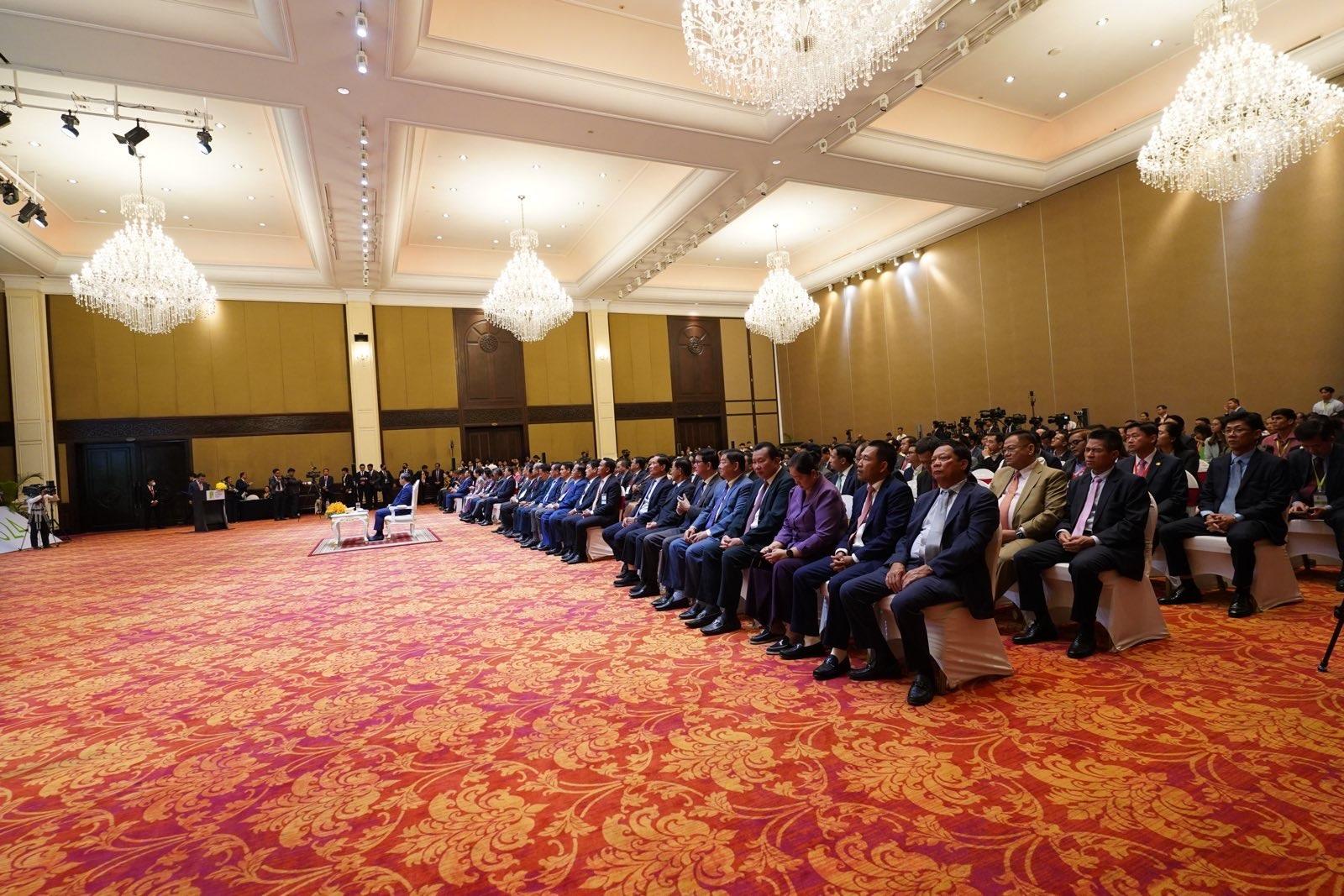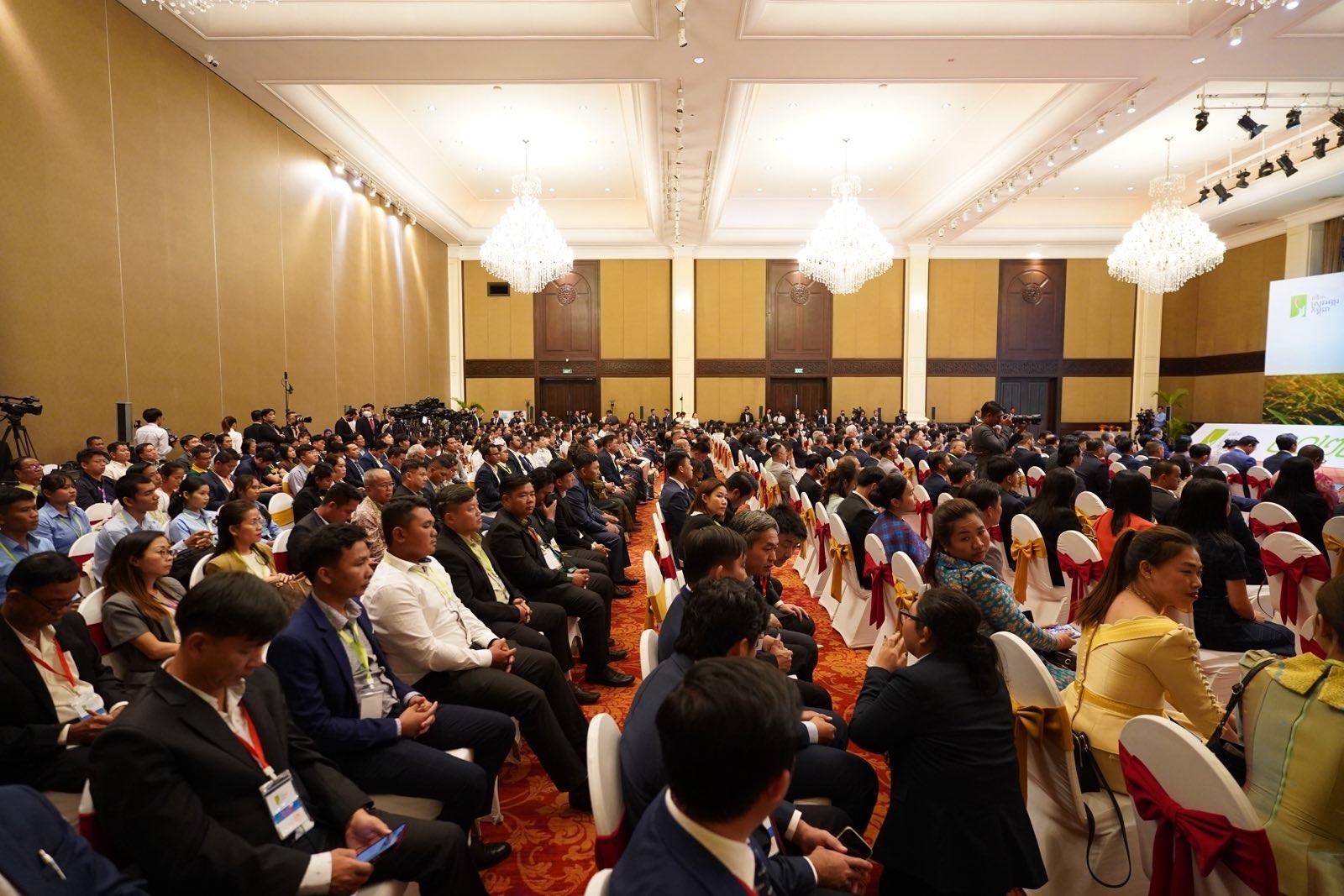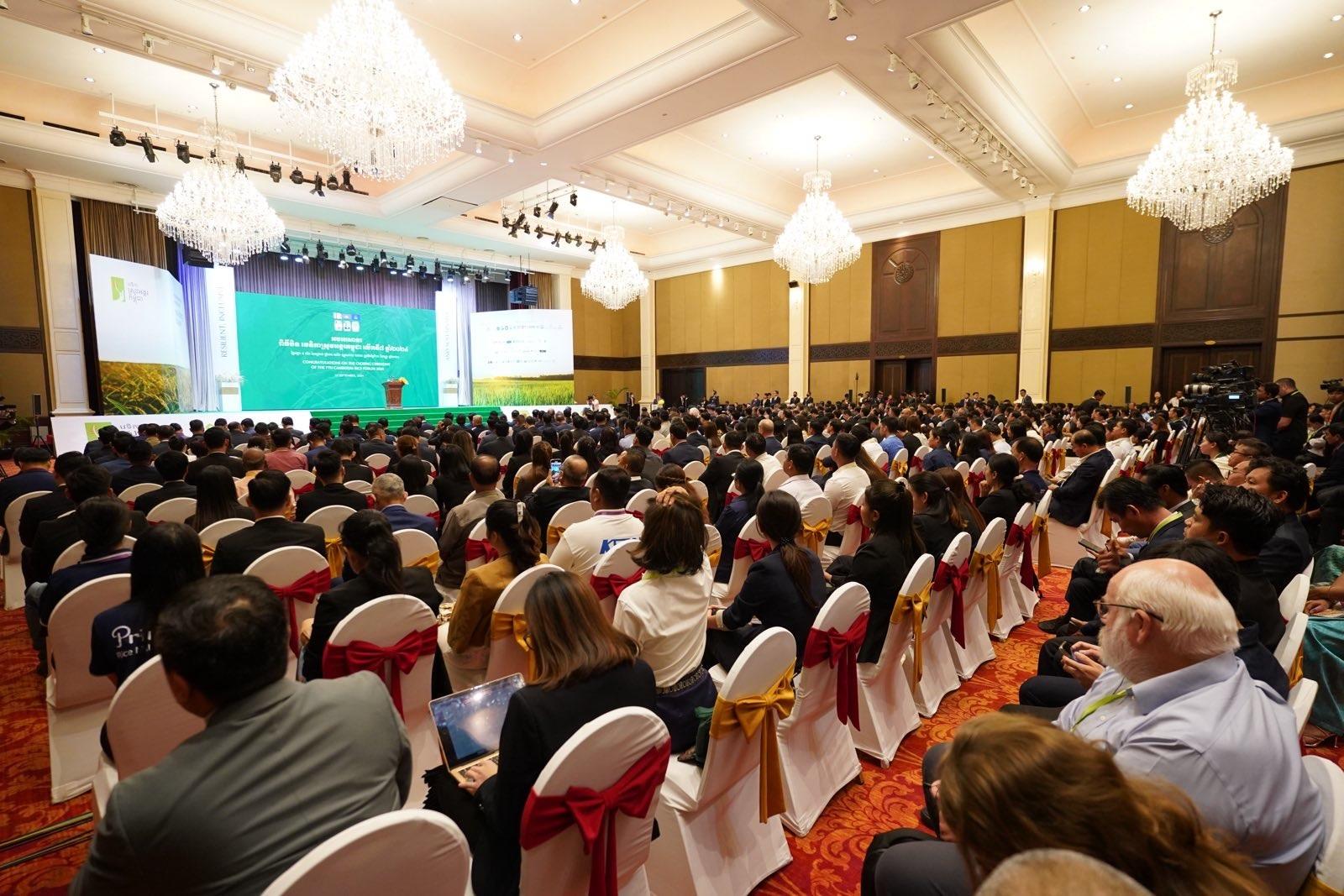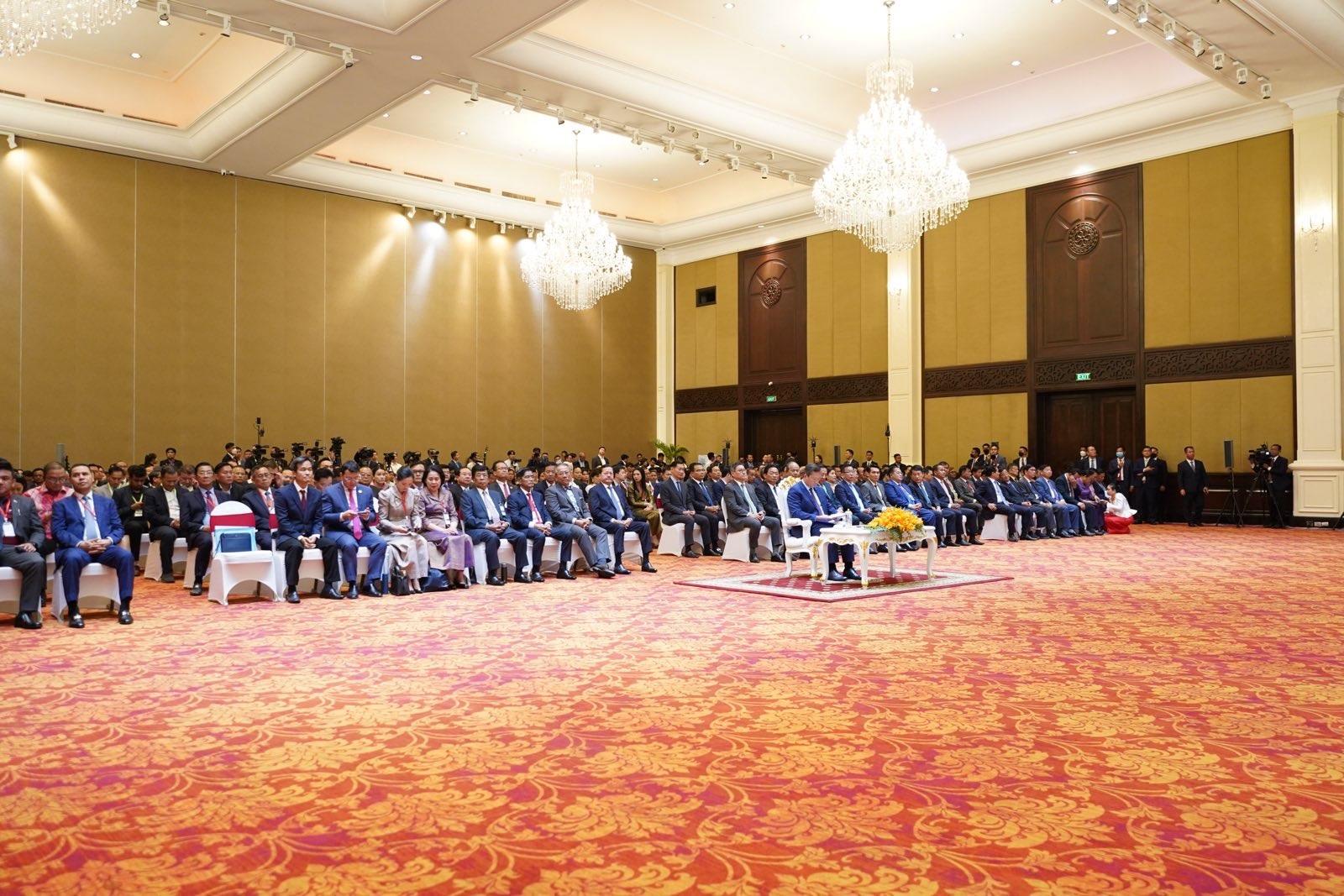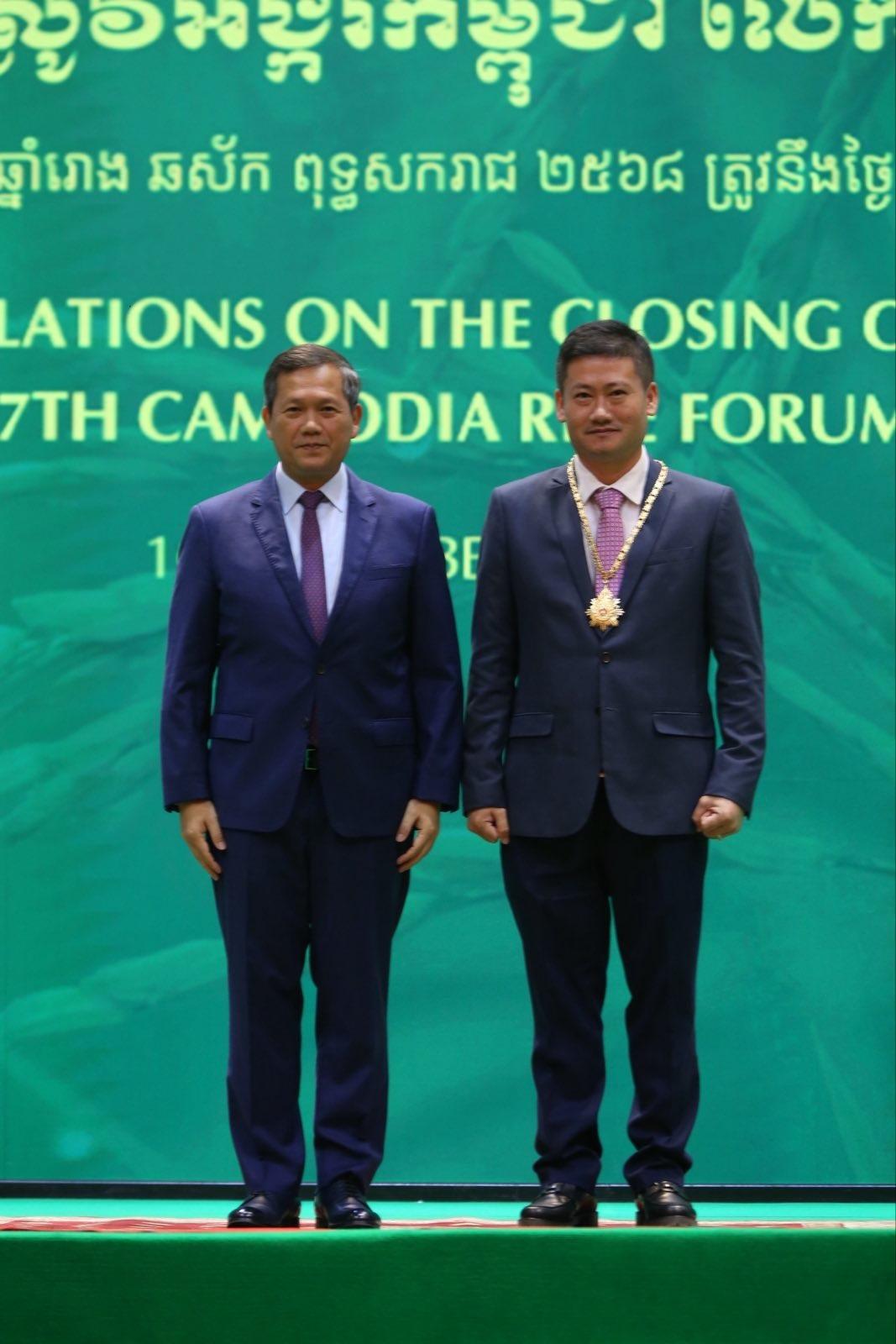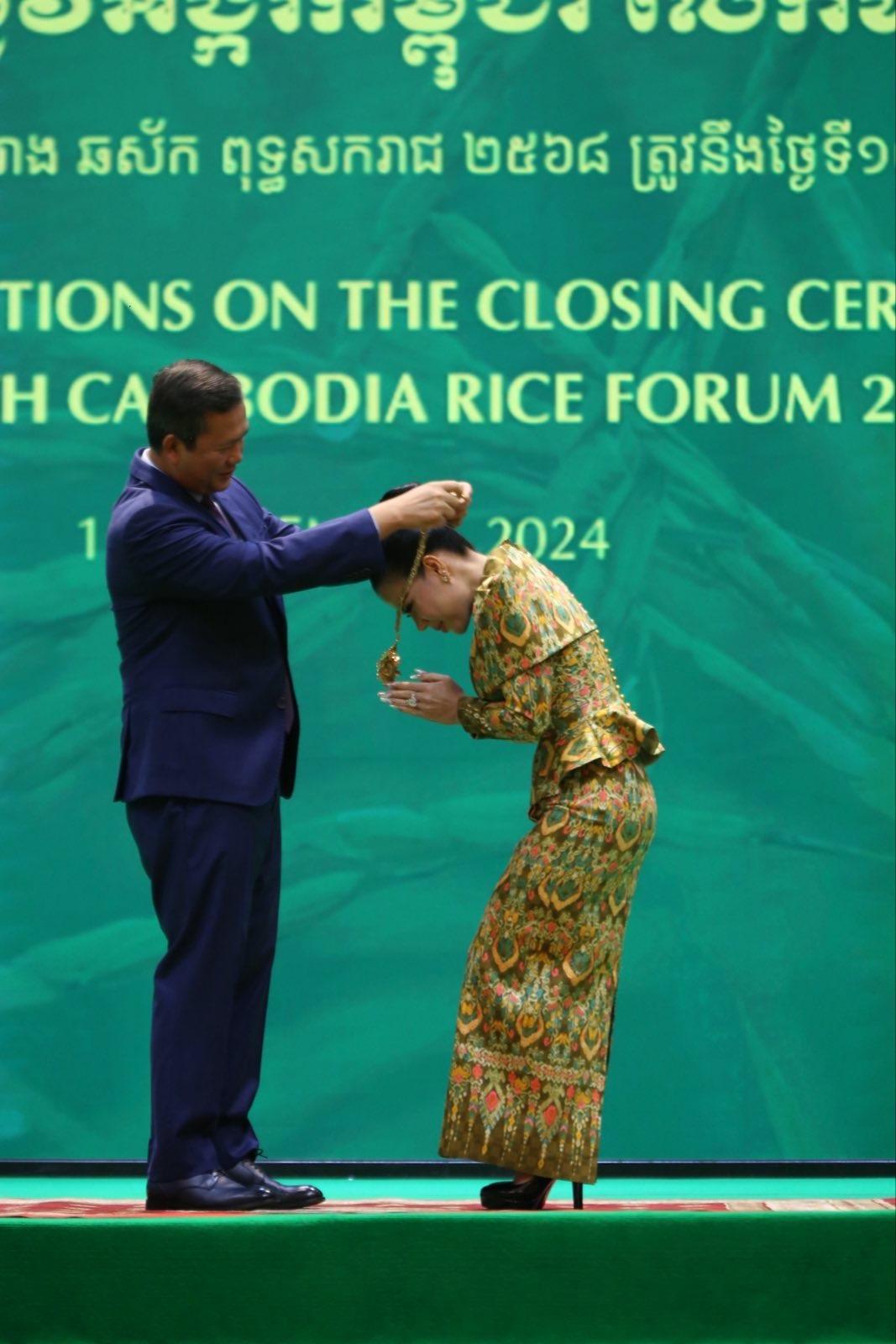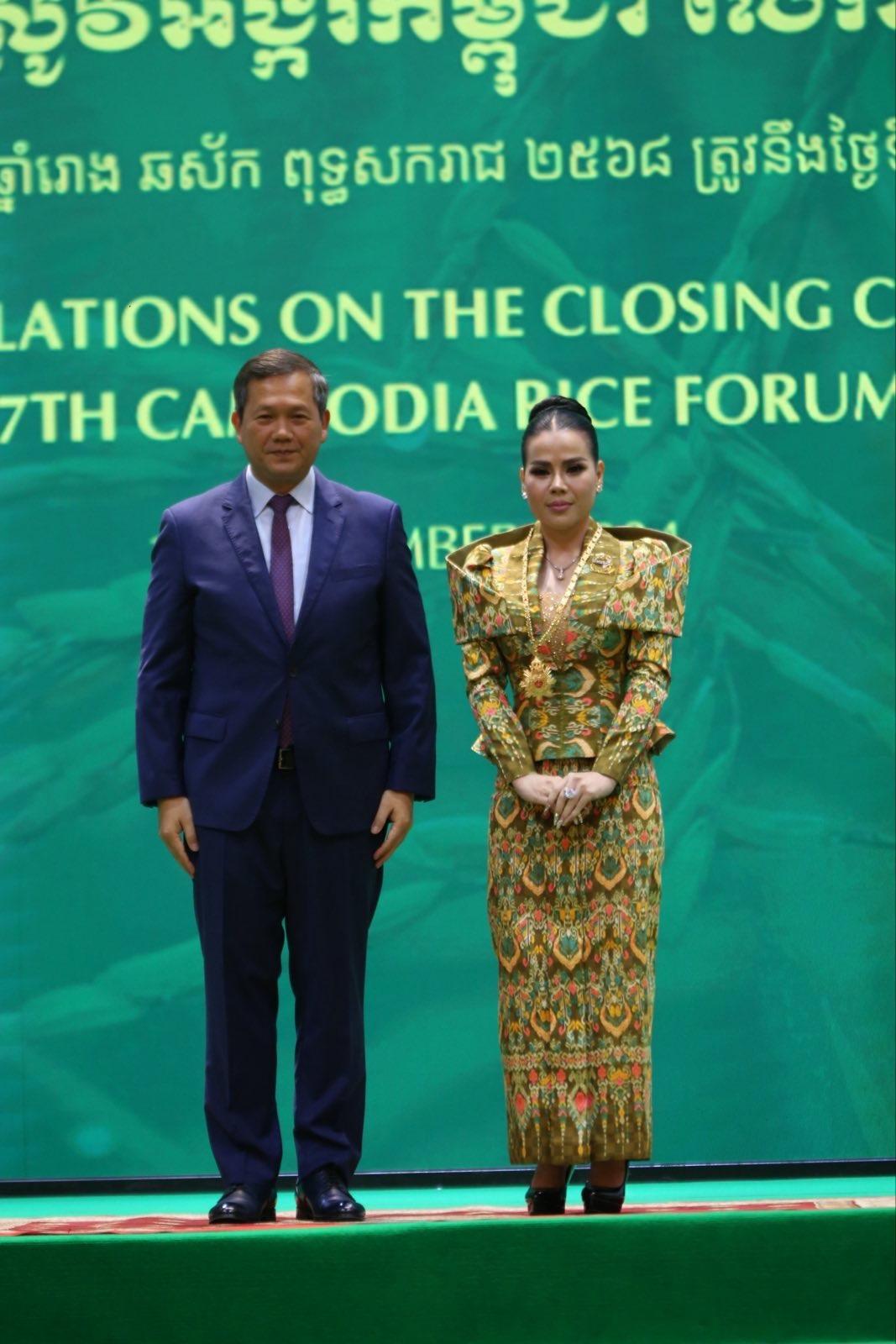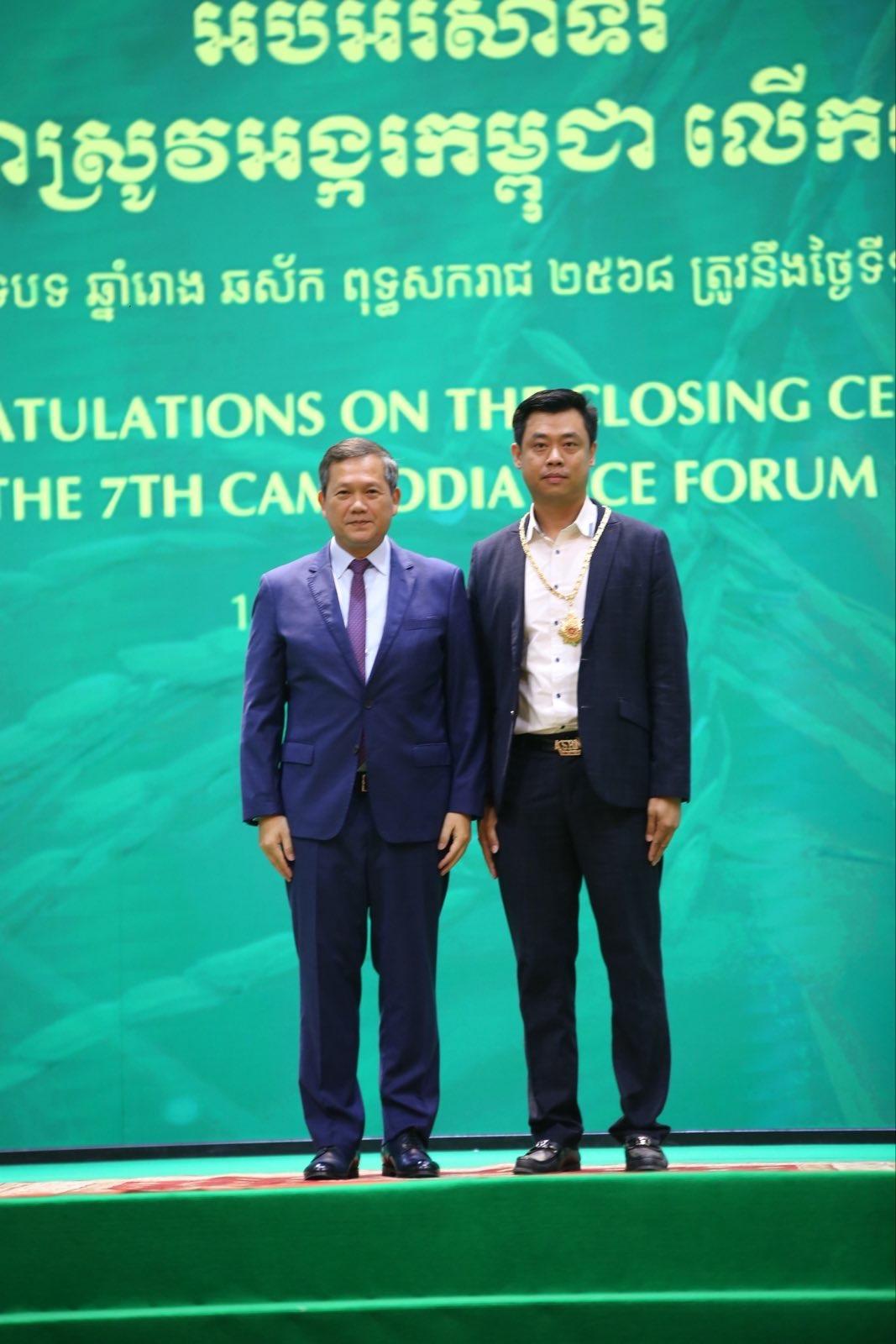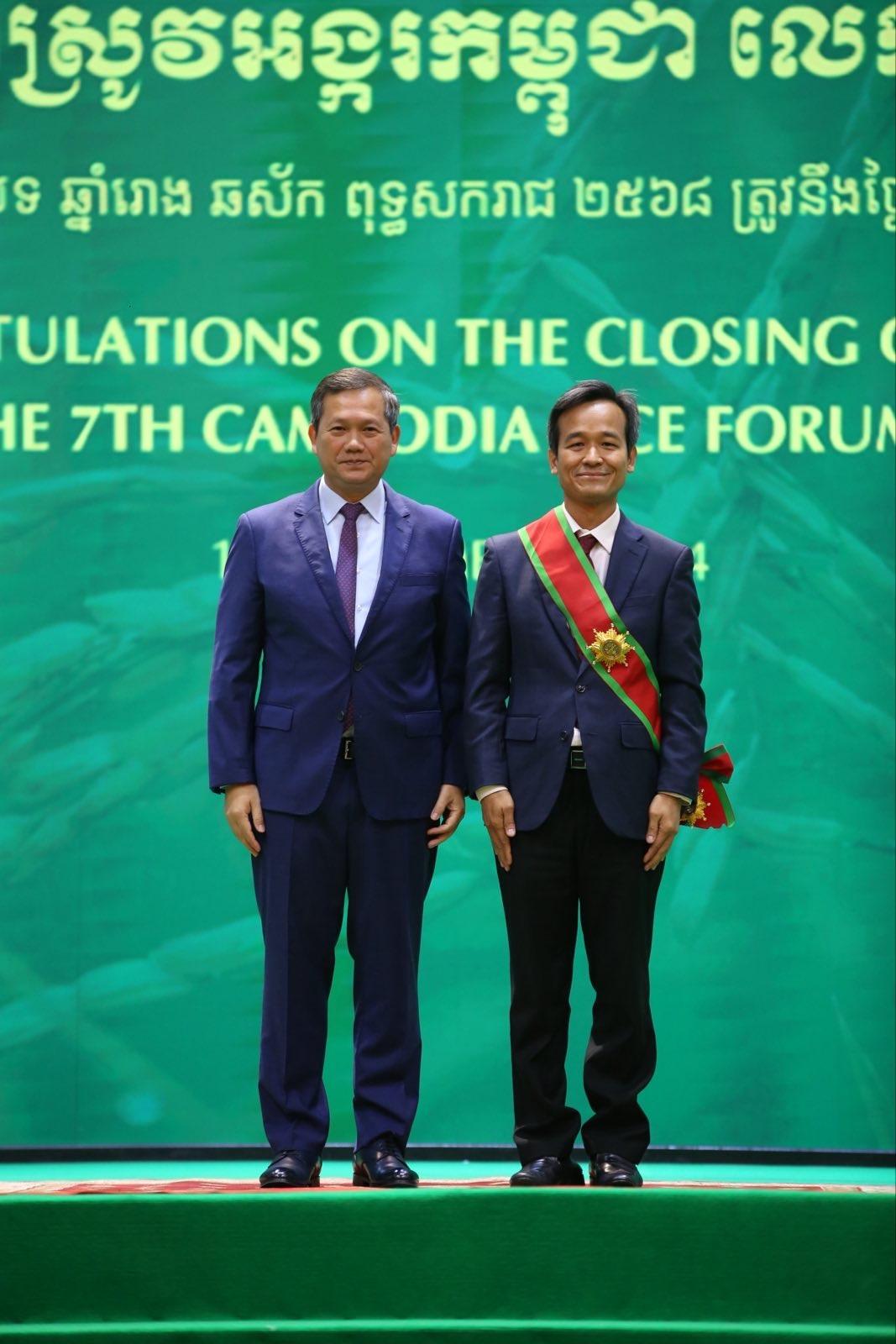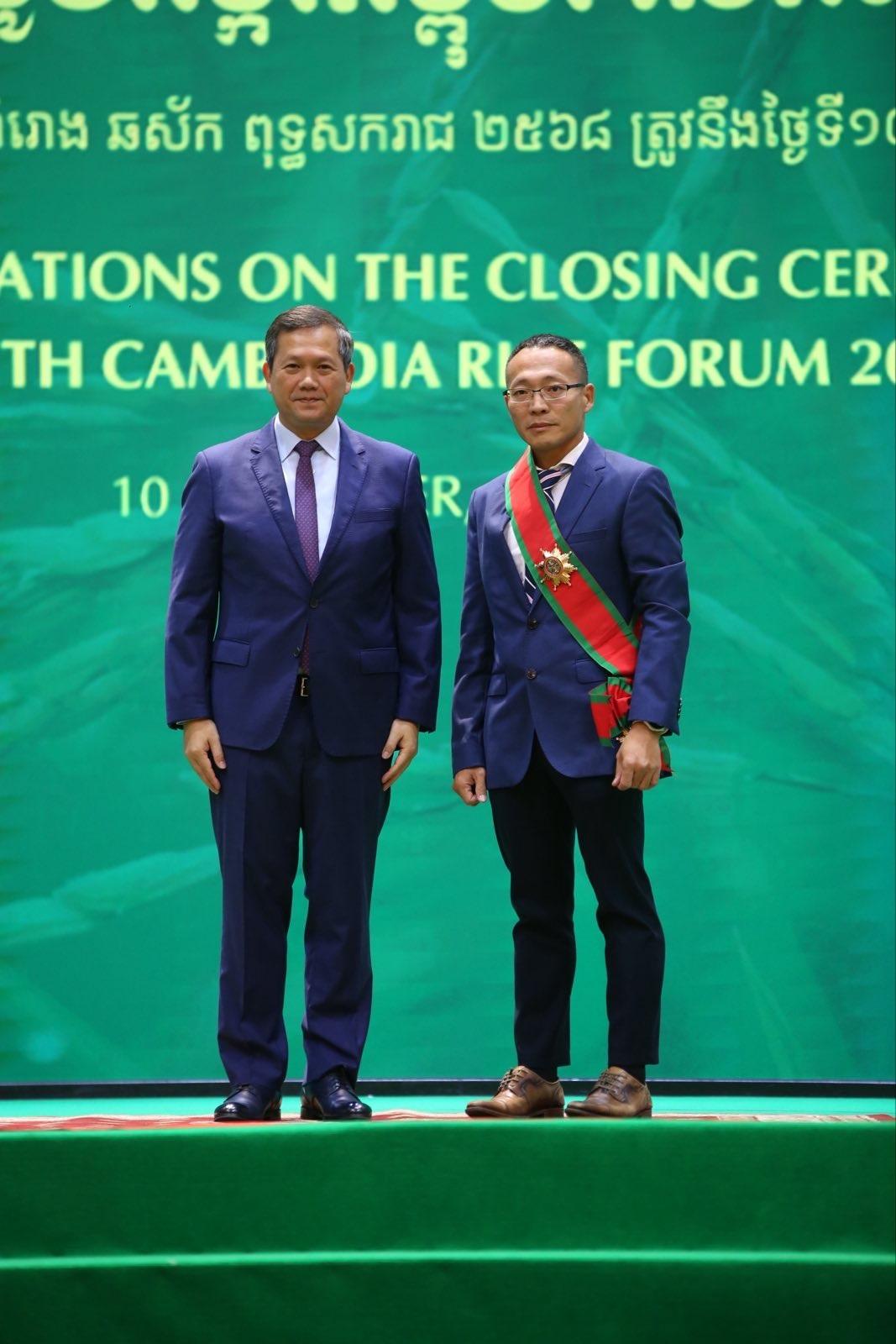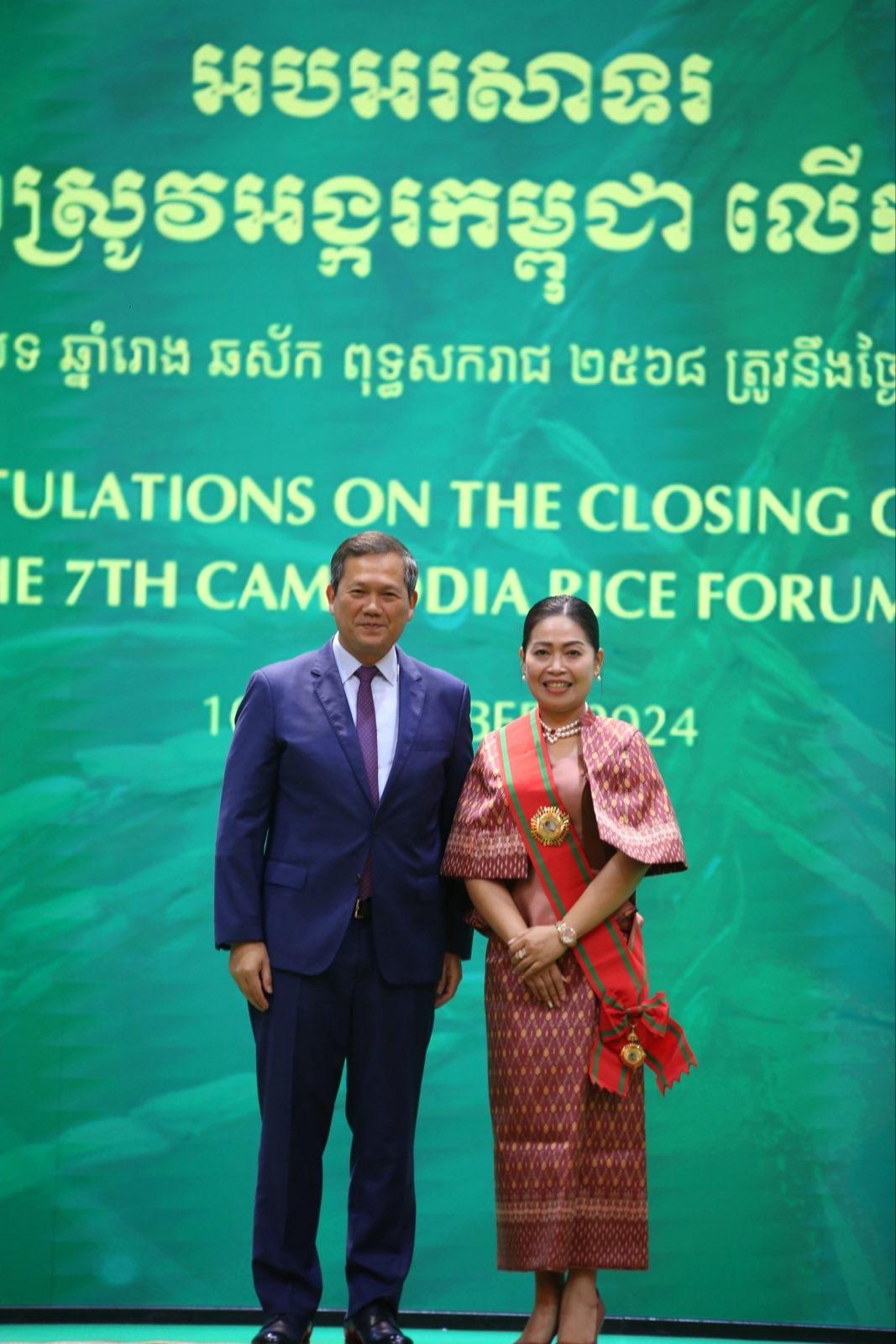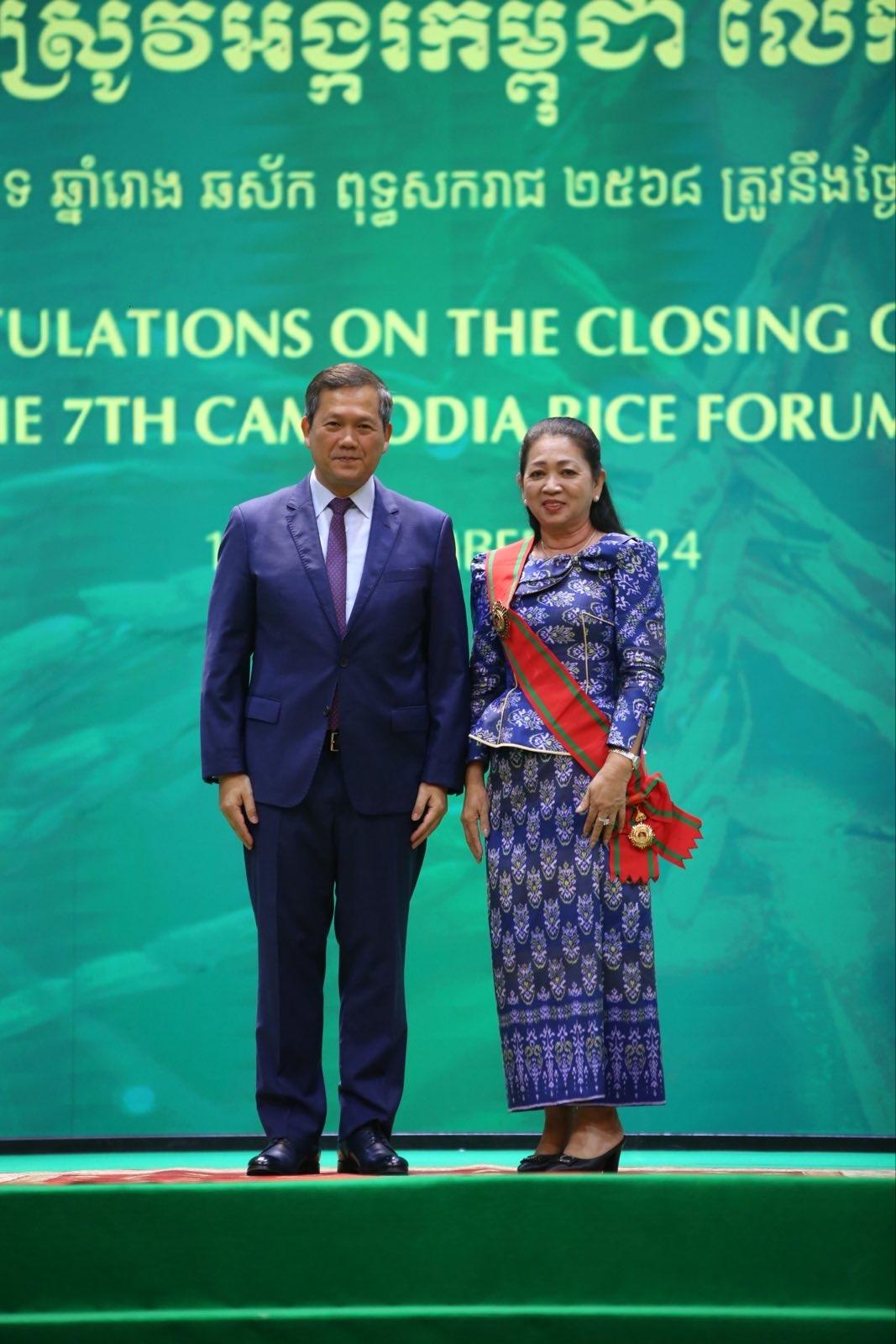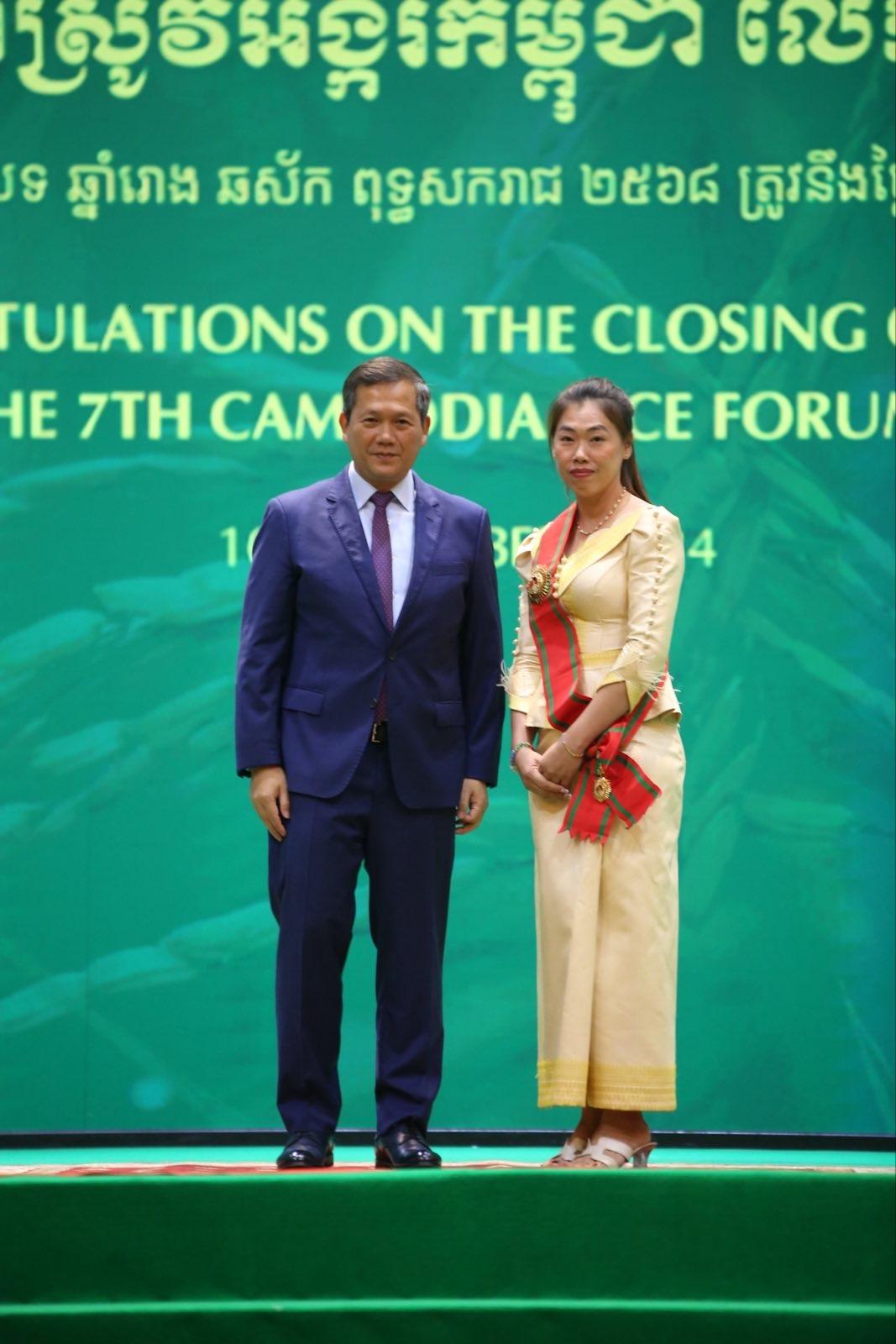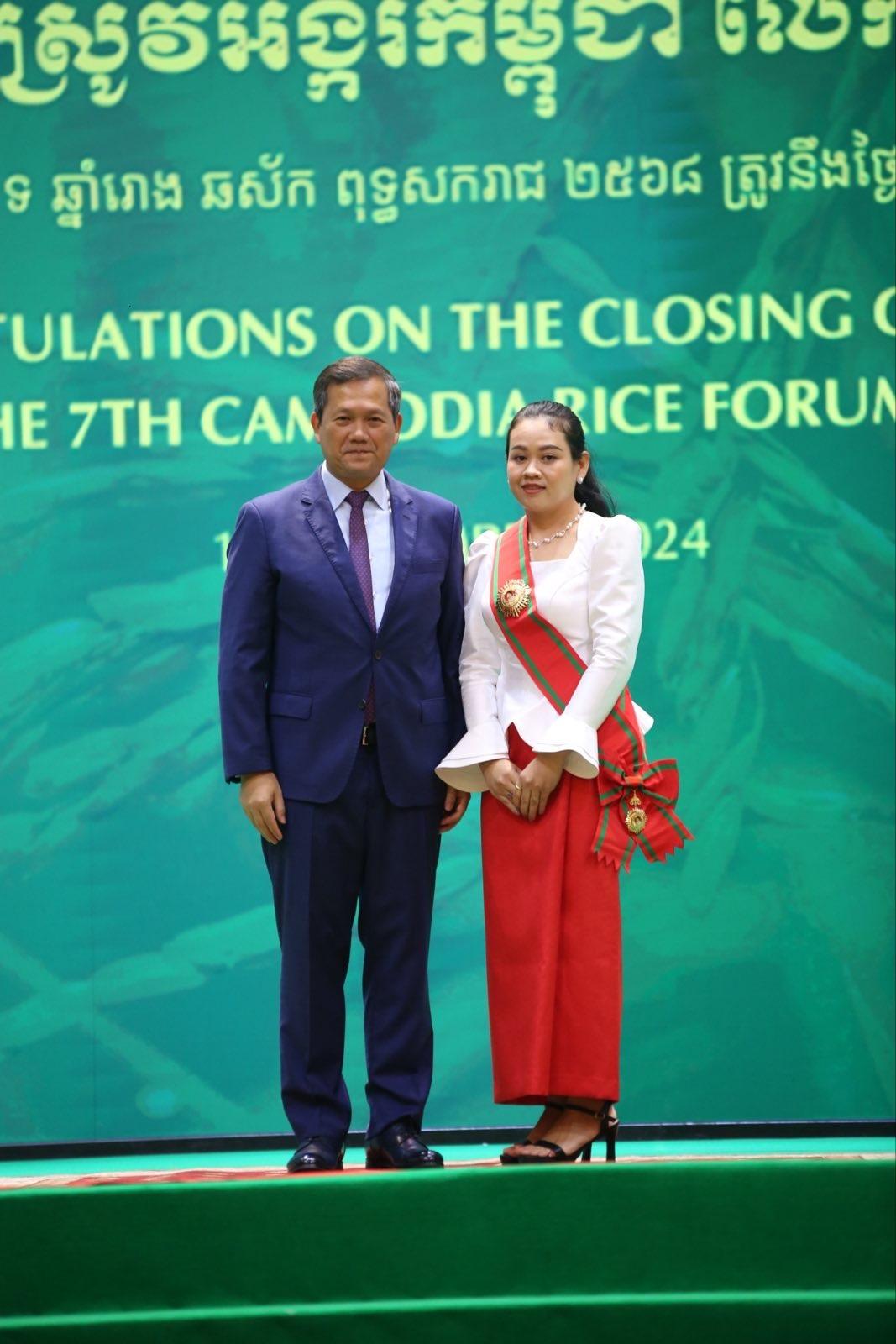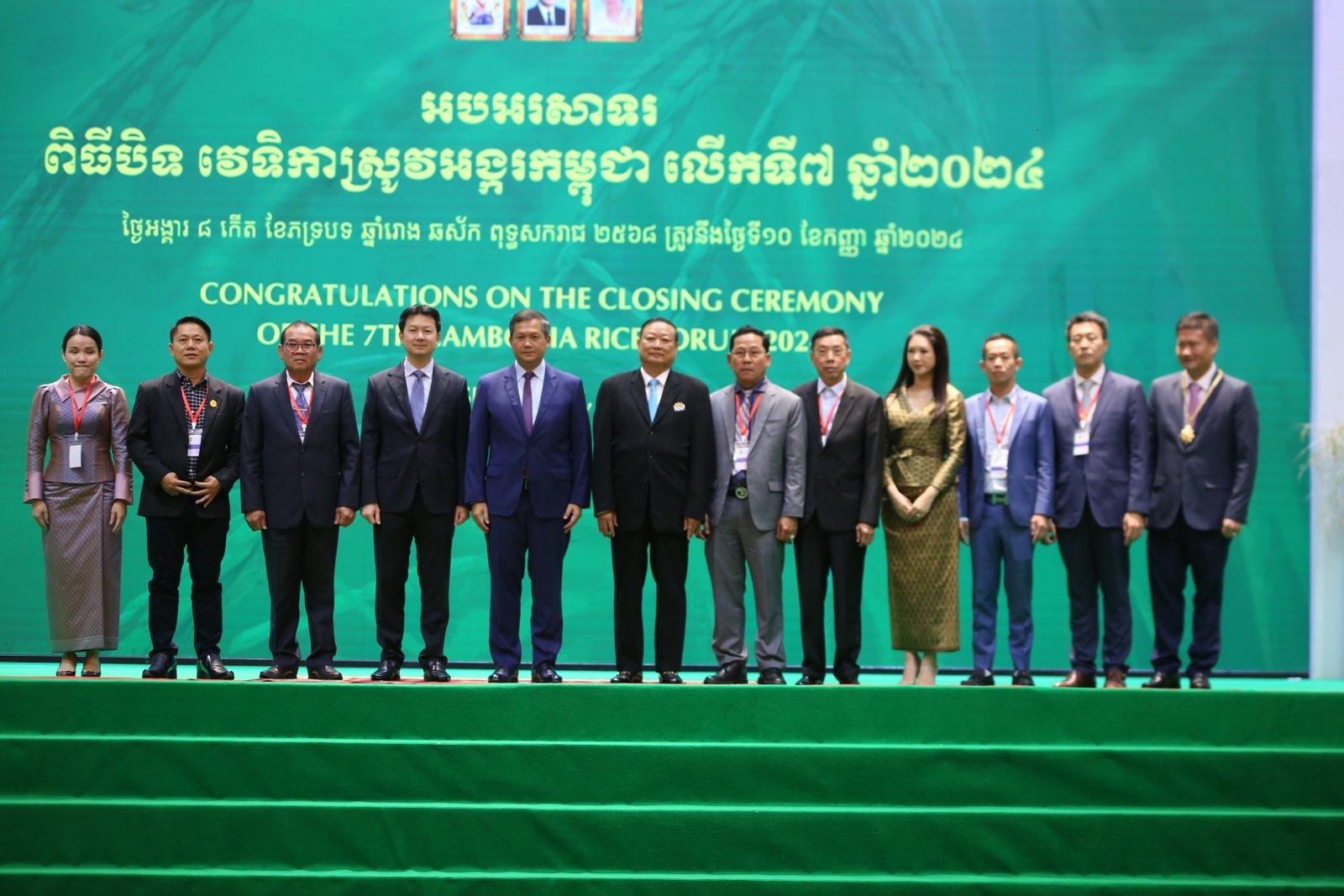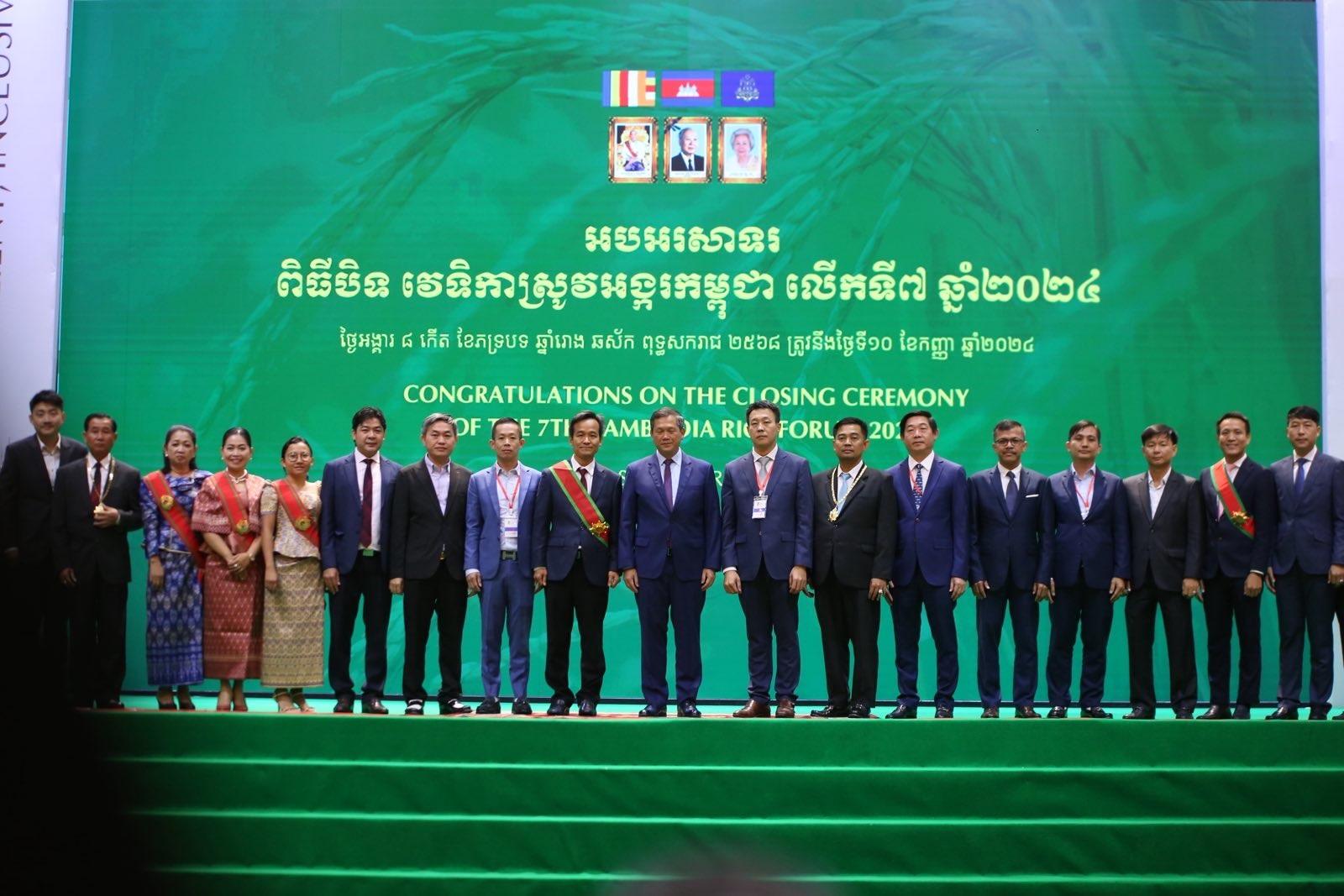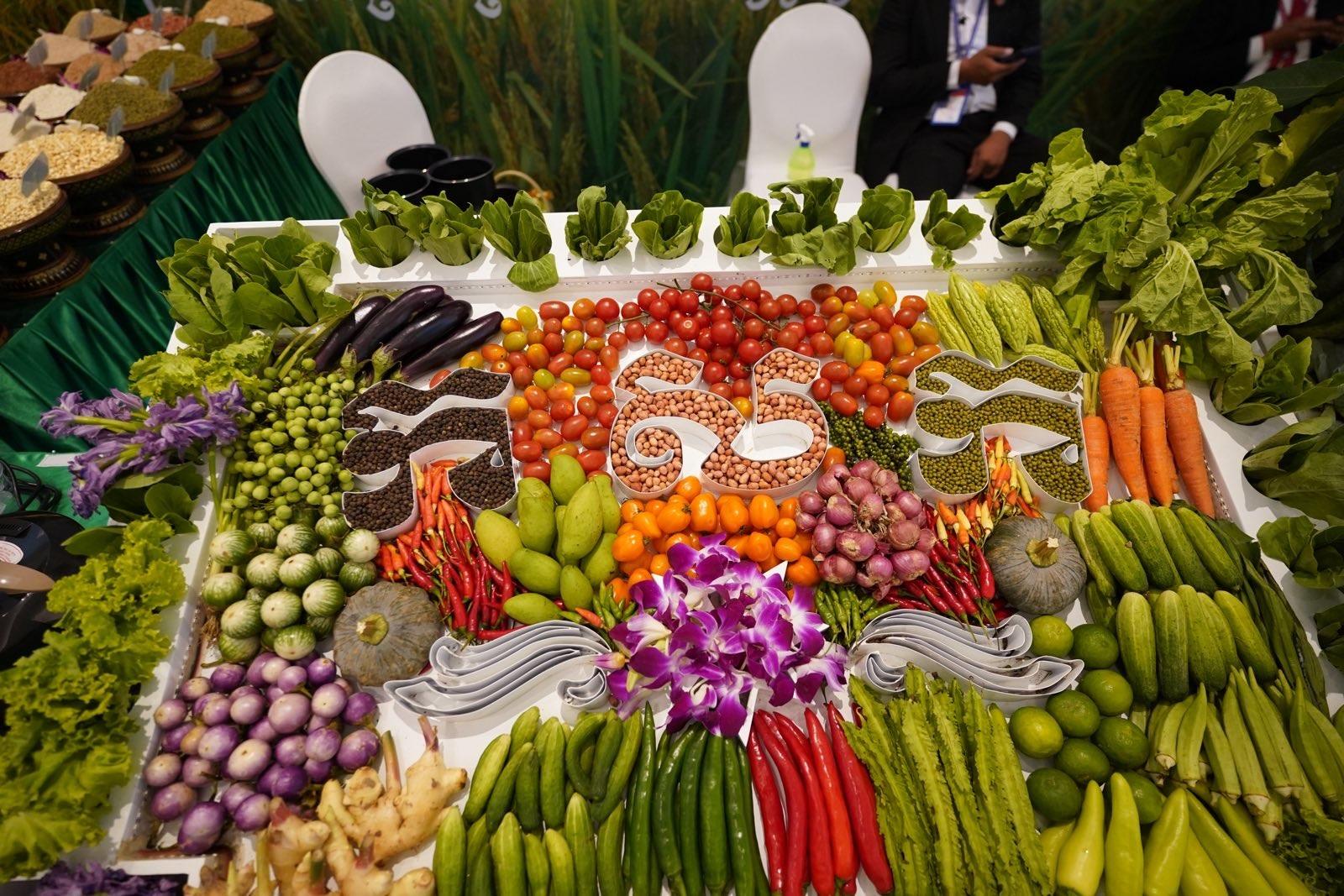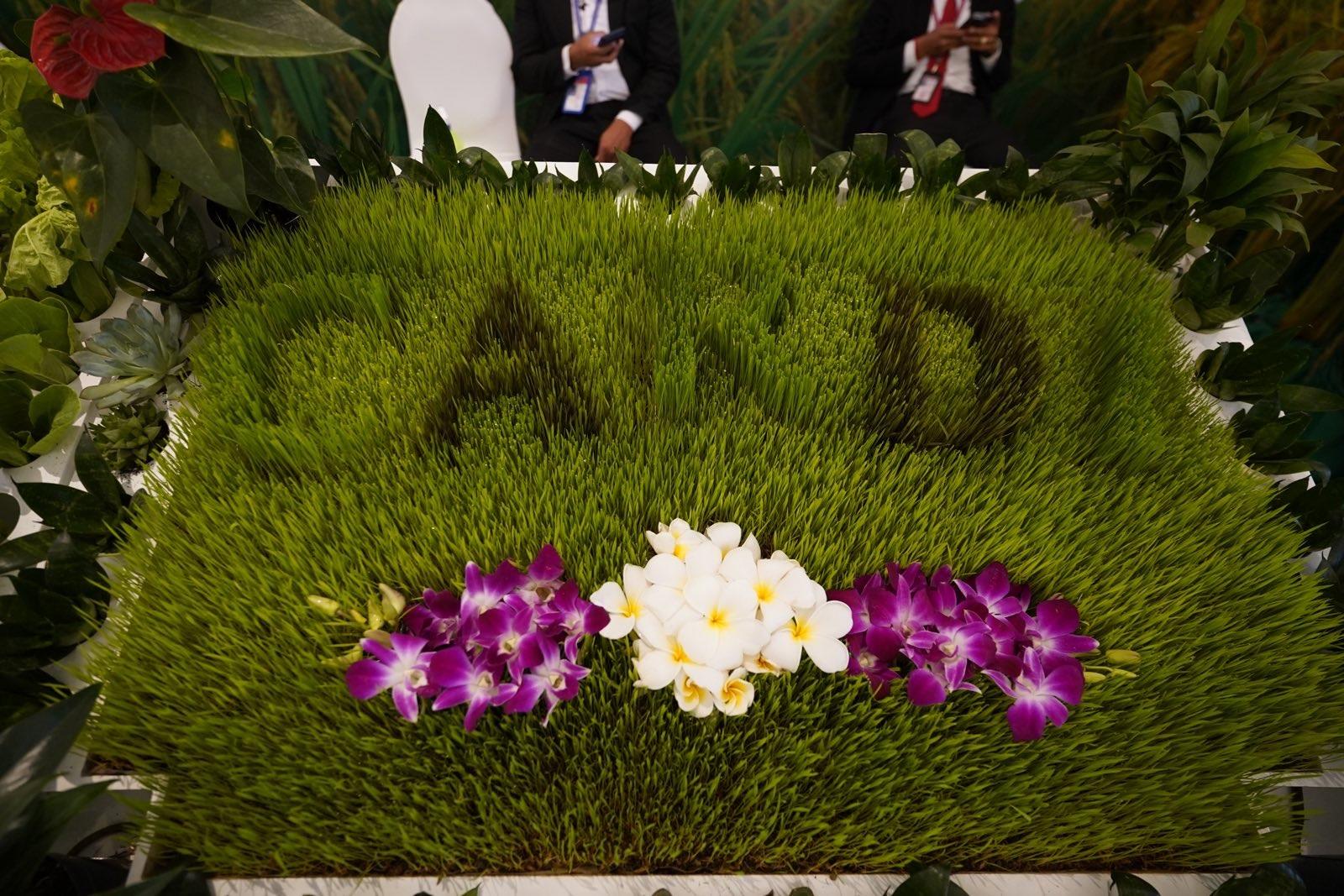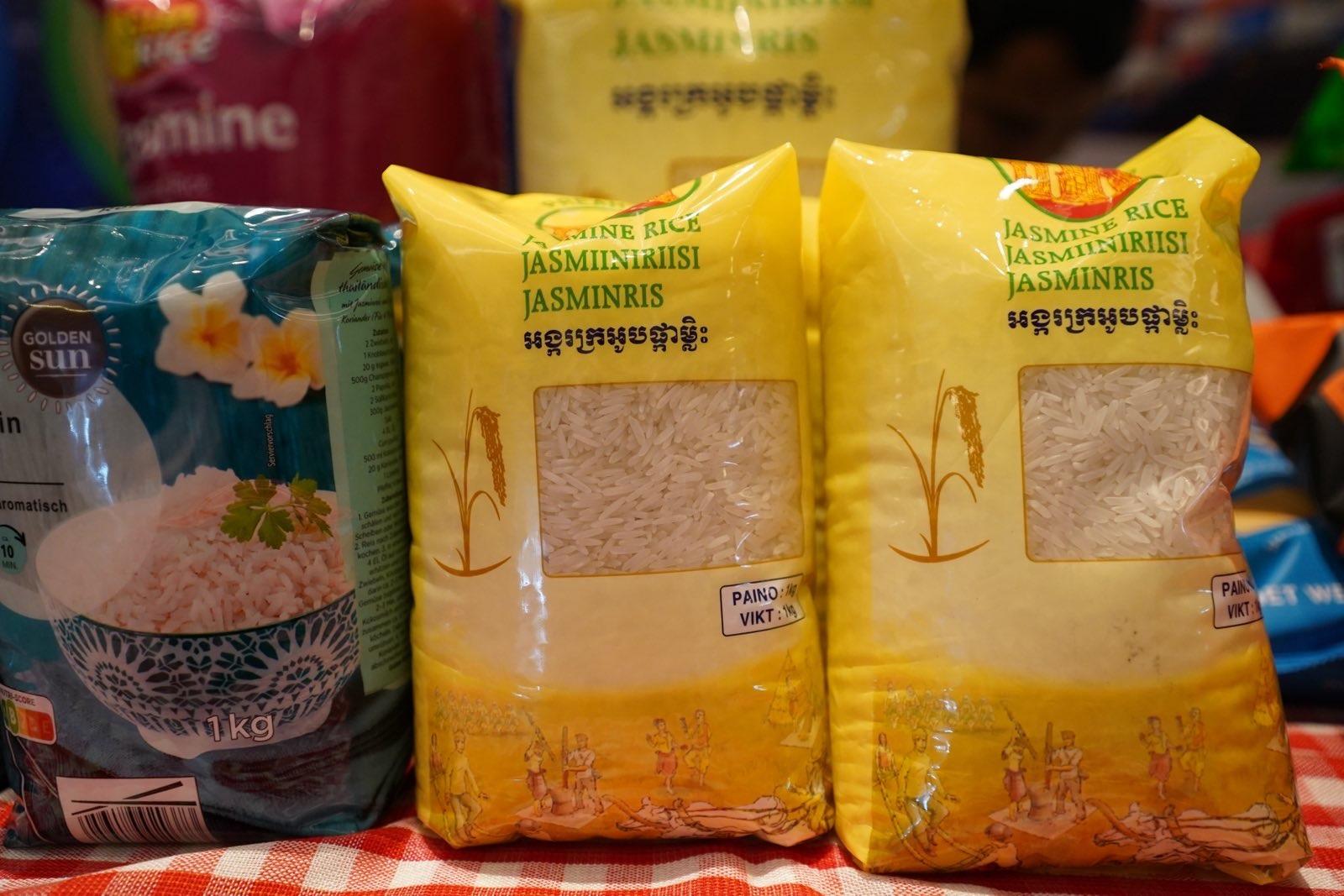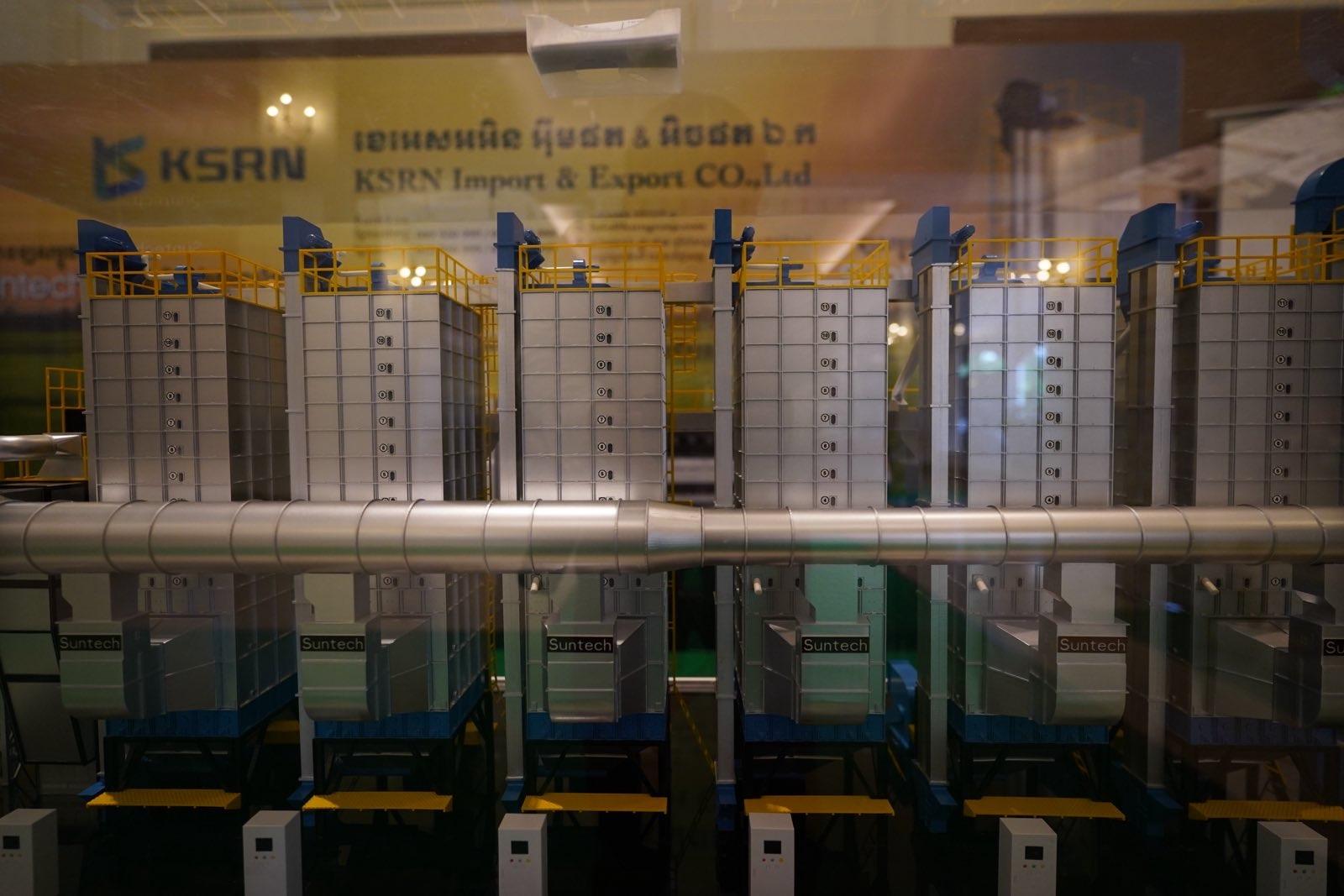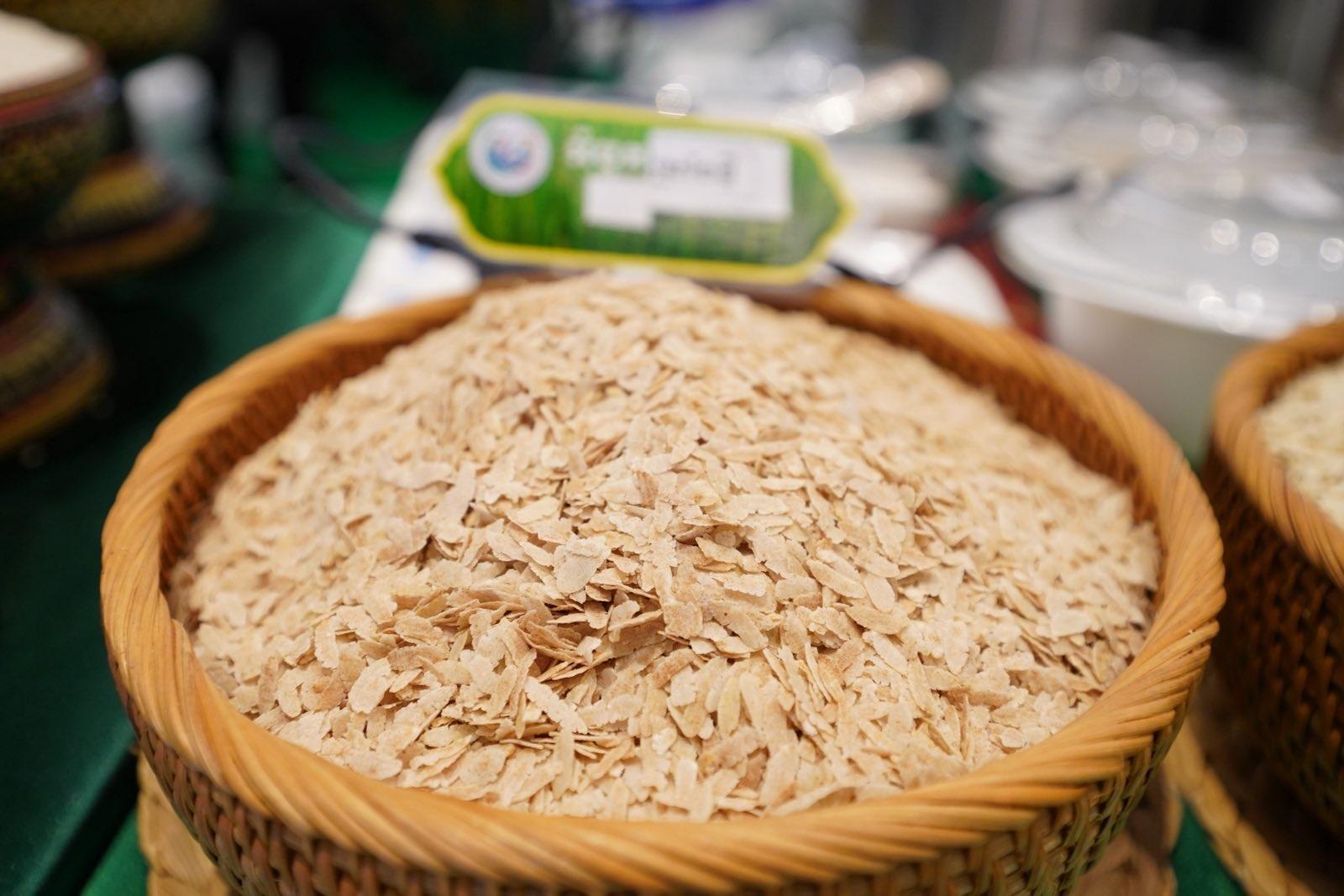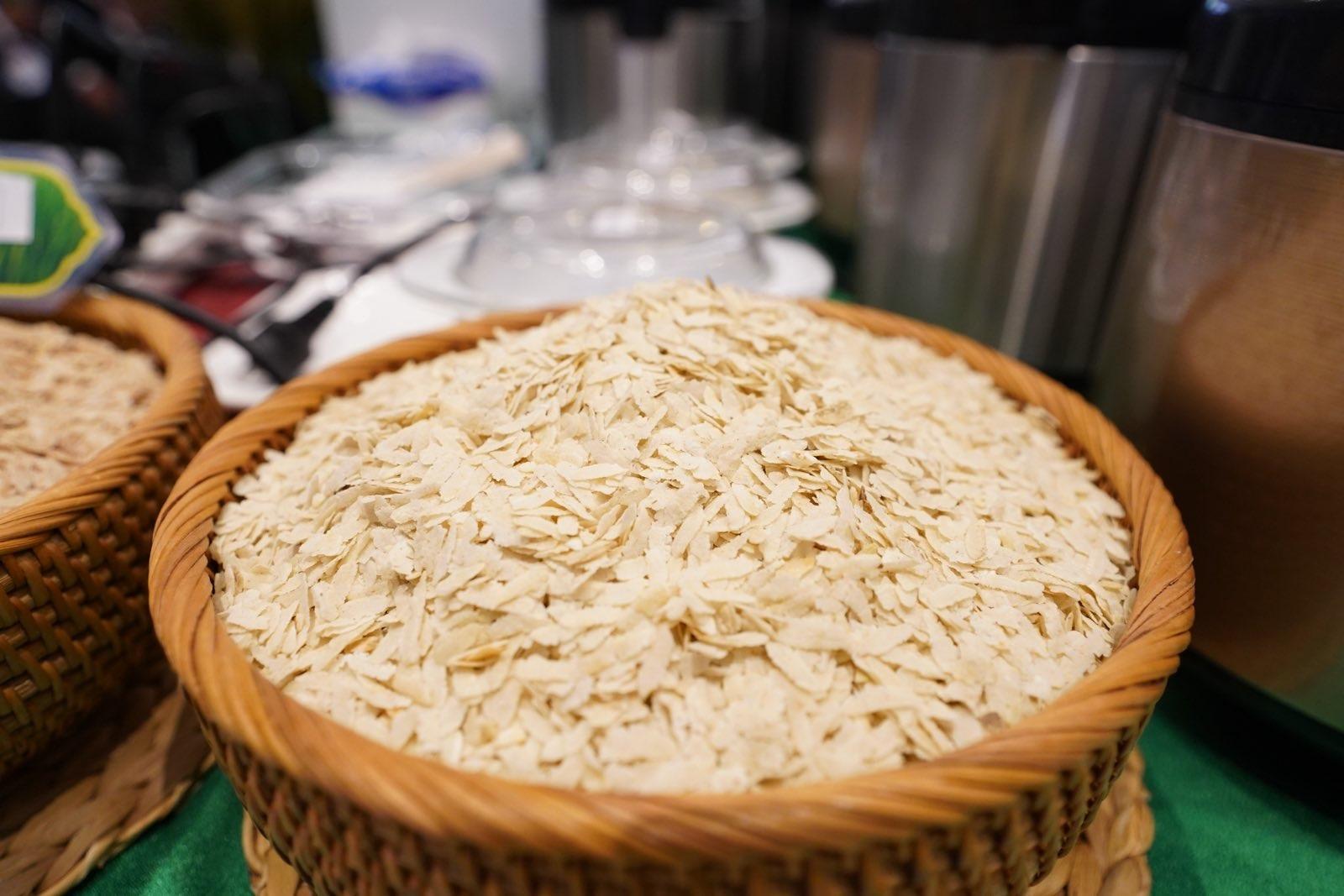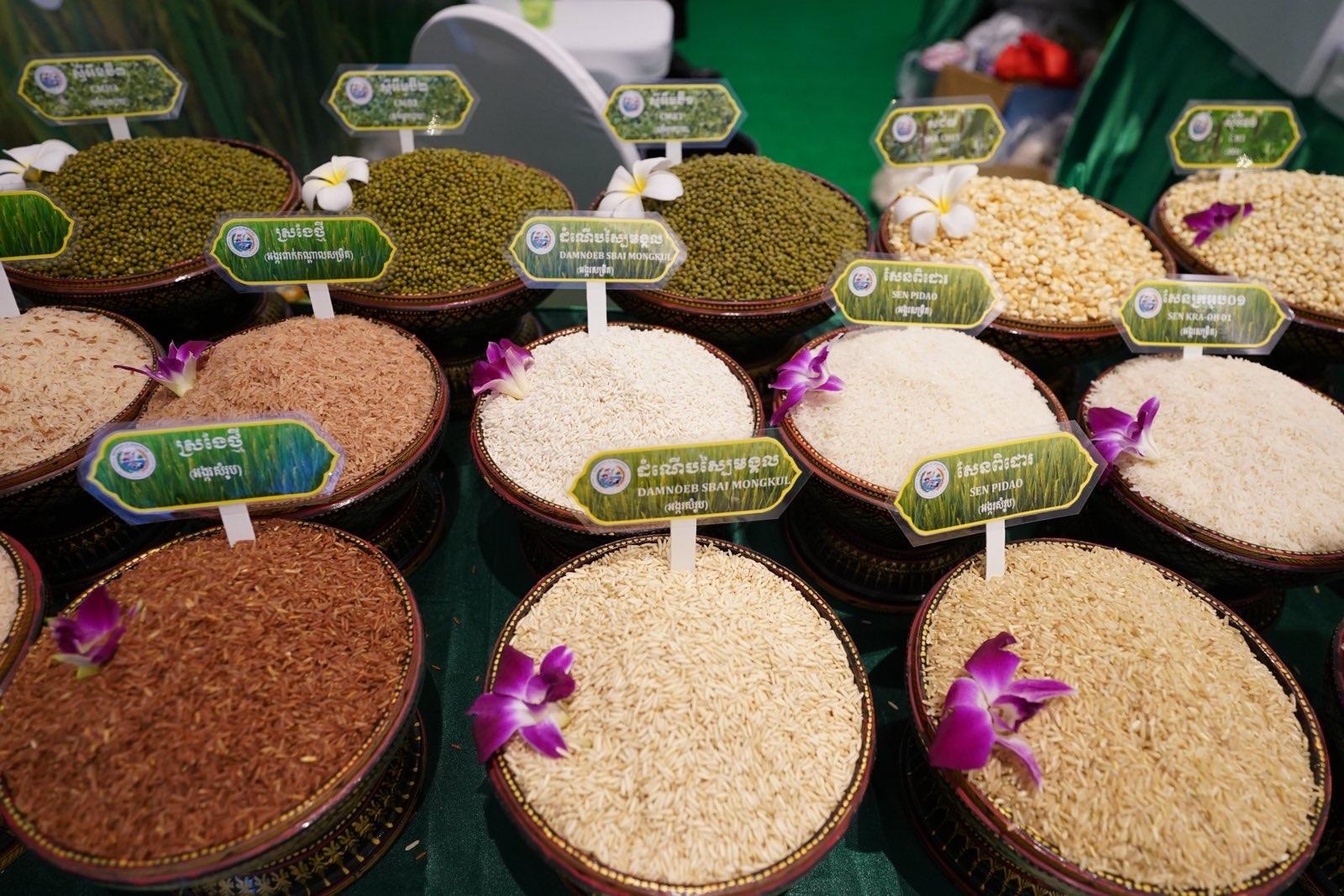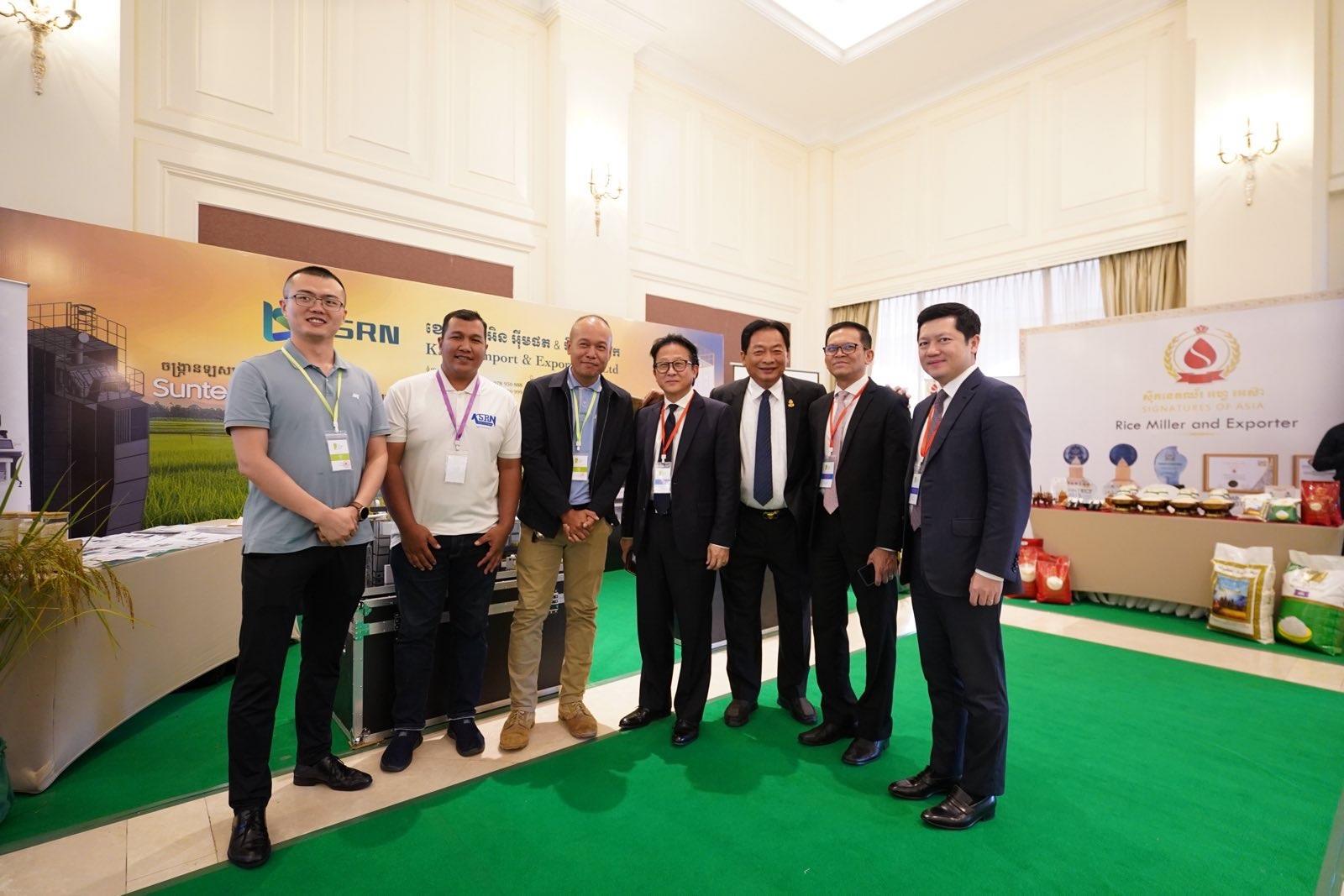Phnom Penh (FN), Sep. 10 – Cambodian Prime Minister Hun Manet stated that the Funan Techo Canal, currently under construction, will play a crucial role in both domestic and international trade, particularly by reducing transportation costs.
The premier spoke on Tuesday (Sep. 10) during the 7th Cambodia Rice Forum in Phnom Penh.
The Funan Techo Canal is a key irrigation and logistics project aimed at facilitating the export of products both domestically and internationally, especially agricultural goods. The canal will help reduce shipping costs, thereby lowering production costs, which in turn will reduce market prices. If shipping costs are high, the market prices also tend to rise.
“We are enhancing our ability to lower shipping costs and ensure the efficient delivery of our products, including agricultural goods. Lower shipping costs mean we can offer higher purchase prices to our citizens while maintaining the competitiveness of our products in international markets,” the premier underscored.
Samdech Thipadei also expressed his gratitude to the people across the country for supporting the Funan Techo Canal project, which will greatly benefit agriculture and logistics.
It is noted that the Funan Techo Canal project, which commenced construction on 5 August 2024, is expected to provide significant socio-economic benefits, include as follows:
1. Strengthening Cambodia's political independence in water transportation
2. Reducing the cost, distance, and time required for transporting goods and passengers, while facilitating seamless connections with other modes of transportation
3. Reducing toxic emissions in the environment
4. Supporting a sustainable environment and ecosystem
5. Creating new habitats for aquatic animals, plants, and fish of all kinds, with an estimated yield of 1,000 tonnes of fish annually. The project is anticipated to engage over 1.6 million people during its construction.
Additionally, the canal is projected to have a high economic internal rate of return (EIRR) of 20 to 31 per cent, which is significantly higher than the average 12 per cent set by national and international institutions.
=FRESH NEWS
